0 Comments
Sara is a survivor and alumni of My Refuge House. Her emotional and psychological journey reflects the toll that trauma like being the victim of sex trafficking can take on one's life, self esteem, and future. This blog has been lightly edited for proper translation and clarity. After a long wait, I finally enrolled at the University of Bohol as a Criminology student. This breakthrough came after years questioning my capacity, my capability, my future, and self-improvement within the struggles of my confusing life. How could I progress in life without job-hopping and starting over again and again with the same career status? Little by little and through self-doubt, I found the answers. I had a wonderful job, and great colleagues I could call on, but around May 16, 2023, I decided to stop working at Dinghow Dimsum store at Banawa Cebu. Around this time, I knew the company was torn about choosing to keep me on, or let me go due to my performance. I was great at customer service, and had many instances of positive feedback from customers on the website, and through my manager, earning a certificate for my excellent service, and even receiving an appreciation gift of chocolate and perfume from a customer. Even with all of the positive feedback I had difficulties in my attendance and tardiness. Management kept giving me many chances because they appreciated my excellent service to the customers. They were very considerate about my behavior, but I felt too guilty about the trouble I caused to the operation of the restaurant. I kept on asking myself why I have such difficulty focusing on my career. I knew I needed time to work on strengthening the best version of myself. I was also inspired by my partner Liberty to make this big life change. She has always been by my side throughout the years with many dreams and plans for her life. She graduated with a bachelor of science in social work with a dream to work in the government to earn a high income. After she graduated, we prayed for many months that her application would be considered, and our prayers were answered! She became employed in her desired job as a government social worker in the Department of Social Welfare. Seeing her reaching her dreams made me ask ‘how about me?’ and made me think more seriously about my future, and eventually leave my job. The day after I quit, I was all alone in our place. Liberty had been assigned in Bohol, far from our home that we lived in at the time. Without work or plans, I felt stuck and stagnant for a month. I was so down and I didn't know where I should start again. I had many negative thoughts and questions about myself on how to stand up again to work for my future. I always shared my thoughts and feelings with Liberty who helped me through my struggles and confusion. She advised me, saying "It's up to you, love. Ask yourself what you really want in your life. I'm just here to support you whatever it is." Day after day, Liberty and I had deep conversations about what I want, and my plans. One night, she started asking me “Should I stay with a person with no progress and plans for the future? How about me? Do you have any plans for our future? How about what I expect from you?” Suddenly my world stopped, and time stopped, and I saw only a wide space where Liberty and I were. All I could answer her was that I was still planning. That night I cried a lot, and started questioning my life. Did I deserve to be with Liberty? If I don’t inspire her, am I effective as a partner? Liberty has been my support since day one. I really love her, and don't want to lose her. The next morning we had a video chat where I mentioned going back to school. We talked about what went wrong with my last scholarship in 2014. At that time I was so naive - all I knew was having fun outside school without thinking I'm already losing focus on my studies. My mind was refreshed with this feeling of eagerness to go back to school. I believe this time I will be more focused on finishing my studies. I realize now that I owe Liberty plans for our future. I worry about expenses going back to school, and the outcome, and sometimes question if the Lord is still working in my life, but trust He's working in his greatest way. The Consent Retreat in June 2023 was the most heavy yet inspiring event I ever experienced. We talked about trauma, and its triggers, effects, and how to overcome them. We learned the strength in sharing your story whether it is one of success, or still a work in progress, is the inspiration it can bring to others in their struggles. I learned that there is no time limit on progressing in life. Even if you feel you are getting nowhere, progress moves you slowly step by step toward who you want to become. Struggles, triggers, self blame, questioning self worth only mean you are aware of the work you are doing, even if others cannot see it. I am aware of my struggles, and now understand that I am still working on my triggers. The Consent Retreat showed me the overwhelming emotion that I did not consider. They taught us how to fight, how to control, and how to self-focus in the face of these emotions, and I found a clearer mindset, clearer plans, and clearer actions to take if I start struggling with myself.
After the event, I directly contacted the staff in charge of the scholarship. Within the next few days, I had my virtual interview for my scholarship application. I had prepared myself for their questions addressing why I suddenly want to go back to school. I answered that I had been working in different companies, jumping from one job to another, and now I have decided to go back to school to make progress in my life and be the best version of myself. I communicated my eagerness to finish my studies, and to have professional growth in order to provide myself a clearer path with the guidance of the Lord, and prove this will is the end of my story. The interviewer also questioned me about the 2014 scholarship that I wasted, and asked how that would be different from my current situation. I told them that I was young with no goals and no realization about what would happen if I didn’t finish. But now I have plans for my life. After the interview, I waited for updates on my application for three weeks. During that time, I was dispirited, uneasy, and had difficulty sleeping. I thought maybe they refused my application due to my history with their scholarship. I had already moved to Bohol, and was alone everyday with Liberty at work. Daily, I would prepare breakfast, clean the house, wash clothes, and complete all the chores in the house. When Liberty got home, I prepared dinner. Actually, my life felt quite peaceful. But the silence also made room for all the negative emotion. Luckily I had access to counseling which helped a lot. I got so frustrated every time the staff told me the application was still in progress. Sometimes, I would call Liberty who said I would pursue studies with or without a scholarship which helped me to have a confident mindset. Finally, I heard back that my application was declined. While reading the messages I cried. They also said that even though they did not approve my application, they will monitor me during my 1st and 2nd semester if I enroll, and consider my application if they see that I am truly determined to pursue and finish my studies. Even though I was declined, still I have hopes that they will consider my application and help me to finish my studies.
We did it! Five and a half weeks of filming in Cebu! We held our 4 day consent retreat, filmed interviews with all eight of our protagonists, made two trips to neighboring Bohol island, filmed in a women's prison, squatter areas, offices, banca boats, boarding houses, and at a singing competition. We at a lot of pork and pinakbet, waded through sewage-tinged water, conquered two rounds of gastrointestinal distress, and made a report to the trafficking tip line. I wrote a summary at the end of each day, and even that is too much. But I present an edited version here, in case you'd like to know a bit more about what our shoots are like. Day 1: May 14. Arrival day : first stop is the mall for essentials: toothpaste, eggs and bread and of utmost importance: pocket WiFi. Day 2: Dinner with the girls in our film! Everyone is late; much pork eventually eaten. The night ends at the ER with one of the girls’ sister, who is extremely dizzy and has chills. She leaves without being tested, because she's worried about the cost. Day 3: Morning meeting with Cebu Sanctuary, a group that works with survivors to provide education and work - jewelry making. They are donating jewelry to the girls for the consent retreat! Afternoon: filming with "Ashley" one of our protagonists who is now working for My Refuge House. She was buying office supplies for the quarter, so Hanz and I filmed her surreptitiously in department stores. Day 4: Filming all day at My Refuge House's shelter. Today they have first aid training with the girls and staff… and then I had my own emergency, of the gastrointestinal kind. I usually try to hide any kinds of GI afflictions but I was dizzy and in a lot of pain, and the minute I asked for meds, the whole campus seemed to know. So grateful for modern medicine, hot showers and the caring and concern of everyone at MRH. Day 5: Took the day off. In dance class, people always talk about “listening to your body” and my body was telling me to just stay put for a day. I feel a lot better, but got pretty tired when I went to the mall for white food (bread, udon, yogurt. Side note, the only real yogurt here is $16 for about 2 pints.) Still plenty of work to do --writing interview questions, prepping gear, coordinating shoots. Somehow I’ve managed to fill the day. Day 6: filming with Hope and her siblings. She’s living in a squatter area that floods with sewage-contaminated water on a regular basis. Her neighbors run a meth den. It’s grim, yet we also found moments of joy - like the kids going crazy in a torrential downpour, jumping in puddles and turning cartwheels barefoot. On the way out, we had to wade through ankle deep water. I came back and sanitized everything. But still, my Western, soft feet broke out in a rash. Day 7: Three hour interview with Cindy. Her life has been upended in the past three years. Day 8: Interview with Ashley. I debated whether to interrupt her, to tell her that her tears streaked her makeup. She’s grown up so much, and for some reason, I believe that her long distance relationship is the real thing. Discovered avocado soft serve at the mall. I want to eat this every day. Day 9: Interview with Jonna Eleccion from Everfree, an organization that provides scholarships, job readiness training and job search counseling for survivors of domestic abuse, trafficking, and those at risk. Jonna drew parallels between historical colonization and current efforts of people who come to "help” survivors without actually listening to them. She said that before you jump in with your ideas of what survivors need, you need to sit with them and get to know them. “You can have a conversation with a prostitute,” she pointed out. I realized she was outlining the purpose of our film --for people to sit with these girls, get to know why they are where they are, and why your assumptions of them are probably wrong. Day 10. Jethro arrived! He's our our creative producer and editor, and he's also doing some shooting. Day 11: Shooting on Abigail's tiny island, we took a ferry and a banca boat to reach it. Abigail and her husband cried when recalling Typhoon Odette. Their island recently got solar panels but still has no fresh water. We brought food from the mainland but I stuck to PB&J because of my recent GI issues. Day 12: Three people got sick, not sure if it was the food we brought from the big island. My PB&J of paranoia was justified. Abigail showed us how she harvests starfish and dries them. She has to gather 12,000 starfish to make 20 bucks. Day 13. High anxiety all day — packing for Manila, but can we make it with the looming Super Typhoon Mawar? Will the prison cancel? Will the airline cancel? Will Hope be able to get her ID in time? Will we make it to the airport? I had to practice breathing exercises all day while doing laundry, packing, filming Ashley’s scholarship interview, anxiously awaiting Hope to go together to the airport. Long story short: by 11 PM, we are checking into our Manila hotel. Day 14. This is the day. Since 2015 I have been wanting to interview Hope’s mom. She's in prison for trafficking her daughter. Jethro, the champion, managed to get us permission to interview her, and to bring Hope as well so she could see her mom for the first time since the pandemic. The visit was really intense. Her mom sobbed at length, often, prompting ongoing tears from Hope as well. Later, Hope dreamed that her mom got out, but it was a dream of anxiety. “What if it happens again to my daughter?” She asked. Day 15. Lloyd, the father of Hope’s child, died during the pandemic. She has never met his mother, never been to Manila. This was her chance. Lloyd's mother lives in Quezon City, near a spot called Smoky Mountain. It looks like a forested hill but it’s actually a trash heap that grew over. Hope was really nervous to meet her mother in law, but the mom was welcoming and kind. She gave Hope some of Lloyd’s toys to bring back to their child. Day 16. Travel back to Cebu today. Still some anxiety that the typhoon will change our travel plans, but we have had sunny skies and and smooth sailing. Hope was so happy to come back to Cebu. We bought Jamaican Patties in the airport and ate them on the plane. Day 17: Today we interviewed Noemi Truya Abarientos, a lawyer from the Children’s Legal Bureau, and Leny Ocasiones, a community organizer with Gabriela and a professor of Anthropology, Sociology and History. They gave us such great context --of the socio-economic, colonial and historical environment the girls are in. My only regret is not booking a studio to record them, as we were dealing with the sounds of dog fights, hammering, yelling, roosters, saws, and of course traffic. Day 18. A day off! Of shooting, anyway. My therapist encouraged me to schedule rest days and I was resistant, but I have to admit that it was good to recharge, workout, have a nice long lunch with Jethro. We still worked —coordinating shoots, meeting with some of the girl’s employers, planning details for the consent retreat, prepping gear, etc. but it was good to have a day without many obligations. Day 19. B-roll day! We got up early to catch kids going to school at 7 am… then filmed on a bridge that one of the girls walked on for three days straight, contemplating suicide after her abuse. In the afternoon I filmed Carrie, who is working at a social enterprise company that provides life skills training (budgeting, etc,) and medical care in addition to job training and experience. She was initially embarrassed to have me film in her home, saying her place is messy with lot of drug users around. I pointed out that we have gone to many places like that with other girls. Even with the job opportunity, it’s still a struggle. I'm so impressed and touched by how hard she works for her kids. Day 20. Officially the mid point of the shoot. Our interview today was cancelled. The girl said she was sick but I found out later that she isn’t. She’s having a hard time. The book The Body Keeps The Score has really helped me understand this behavior — often it seems self sabotaging or illogical, but it is the brain’s protective mechanism after years of feeling constantly unsafe. My heart bleeds for these girls. So it’s an admin/self care day. I actually work out! To read about the second half of our shoot, including our consent retreat, click here to continue!
This is part 2 of a capsule diary of our seventh shooting trip to Cebu. Please read part one if you haven't already. Day 21. We went to the south of Cebu Island, about three hours in a rickety crowded bus with no AC. We went to give Ashley's mom the chance to respond to the claims that she had been abusive when Ashley was a child. Ashley volunteered to go with us, a pretty brave thing to do. We were surprised that the mother opened up and admitted that she was abusive, explaining that she, too, was violently abused by her brother as she was growing up. She asked for forgiveness for the first time. It was a huge turning point and very emotional. Our return required a 30 minute motorbike ride through green mountain passes, the best four bucks I have spent in Cebu. What a thrill! No, of course there are no helmets for us, but that meant we felt the cool mountain wind in our hair as we zipped down passes with ocean views. Ashley said that this was the first time she'd gotten to ride as a solo passenger, how free she felt. Day 22. Back in the city. We had our interview with Carrie, someone who we’ve seen go through traumatic ups and downs. She is proud that she is able to provide for her family, and can relieve her mother of the job that she had before, which was cleaning shells with acid, using her bare hands. After an almost 3 hour interview, we took her to lunch. Afterwards, I said, “do you want some ice cream?“ And the smile she gave broke my heart. She ordered a single scoop, her indulgence so modest. Day 23. Filmed with Amber in the morning --whose baby just turned one month old! Her partner seems sweet, baby-faced and cradling the baby in the bedroom while we did the interview. In the afternoon we filmed Carrie and Cindy at their first full-time jobs at the social enterprise company. Later, I met Ashley at the MRH office, and we went to Colon Market to buy three guitars for the consent retreat. Each guitar cost about $57 USD; these were the higher-end guitars made of better wood with some nice inlaid work on them. Day 24. Filmed with Sara at her home. She cried when I told her this is the last shoot. She wanted her story to end with success, but she says she just has problem after problem. We had a long talk. I explained that her ongoing childhood trauma means it could be difficult for her to make long-term plans or to always act logically, and encouraged her to get counseling. Her neighborhood flooded before I left (a regular occurrence) .. meaning, to depart, I had to walk through a sludge of garbage and sewage-laced water. I donned some (leaky) plastic leg covers, and returned to my condo to disinfect and shower. I am painfully aware that Sara, Hope, and hundreds more in the squatter community walk through this almost every day, and don't have a hot shower at the other end of the trip. Day 25. Three interviews today. We learned that Jackie was trafficked at age 11, but thankfully, rescued before she arrived at the brothel. We also interviewed the girl who cancelled before. I have realized on this trip that she covers very well, but lives with daily fear, anxiety, and flashbacks from her abusive past. In our hotel we see old white men with young Filipinas every day. It's a painful reality of power and economic disparities. But today I saw a girl who looked about 13, with a man with white hair. I made a report to the human trafficking hotline. Day 26. Departure day for our consent retreat! Our facilitators arrived from the US and the Netherlands. I was worried about all the moving parts, and in fact there was a mixup: the van company sent only one van, instead of two. But eventually we were able to load up all the kids, the luggage, the participants and the crew... But I completely forgot our guitars. Nonetheless, we finally all arrived safely. Day 27: Our first full retreat day, and the first time the girls are watching their stories. They were each given their own room to watch about 90 minutes of footage. Several were triggered, and I was grateful for the group therapy, which they left with much lighter attitudes than when they arrived. The girls told us what they wanted removed from their films -surprisingly minor things, like a girl who was singing the wrong lyrics to a song, or another who didn't want to be seen criticizing her friend. One participant does want some major traumas excluded from the film because she still fears her perpetrator and stigma from her family. Of course we will respect their wishes. Day 28. The girls watched the rest of their footage, followed by another round of group therapy. The girls all agreed that having therapy and being supported as they watched their footage was critical. I am seeing some places where I could have improved the program, in spite of the dozens of hours of planning we did. And our songwriting workshop is in jeopardy unless I can find a way to get our three guitars that are an hour down the mountain, locked locked in my condo. It felt like folding a corner of the universe with the concerted effort of Hanz, Jethro, Sharon, and the brother-in-law of one of our participants, but we got the guitars from my locked condo to our hotel (an hour away) in time for Jethro to teach his songwriting workshop. Truly a group effort. Day 28. Today is a big day: an attorney is coming to go through the girls' rights, the clauses in the consent agreement they signed back in 2015, and the changes they would like to make. The biggest request they had: they are concerned about security and would like to add a security protocol to the consent agreement. This is a fantastic idea - for us to consider and prepare for security issues that might come up for the participants when the film comes out. Day 29: Family day: I was so happy that the families of our participants made it! We wanted to have an informative and engaging session, but also some fun. So Omar led zumba, and Maitet and Sharon led a fun icebreaker... and, we changed the schedule so that everyone could swim. By nightfall everyone made it home safely, (though I witnessed a few close calls). Exhausted, I cried several time during dinner. Day 30. Took the day off to recover… but still couldn’t sleep. Downloaded footage, sent out my laundry, went shopping, but was semi catatonic. Day 31. Follow up interview with Hope, then we went to the cemetery to visit the grave of Lloyd, the father of her child. His grave was collapsing and crooked, and someone had stolen the decorative tiles from it. You rent plots here for five years and if you don’t pay to renew the lease, they remove your bones and replace you. Day 32. B-roll day: Filming the former workplaces of Sara, plus the hotel where a girl was rescued. It was depressing, a seedy budget motel with tiny rooms and aging fixtures. Day 33: Hope's daughter's preschool graduation. Why would you ask preschoolers to sit for hours and listen to speeches by politicians for their graduation? Teachers and administrators actually did a dance to celebrate how they hope Cebu will become a mini Singapore. In the evening, MRH Director Rose Ann and I meet with Attorney Ian Manticajon, who is such a gift. He provided his consult with the girls pro bono, and then offered to help amy girls who needed legal help, which we took him up on right away. Day 34: Filming with Cindy, who wanted to share a story of early childhood abuse that she had never told anyone else before. It was pretty intense. Day 35. Took a 2 hour ferry to Bohol to film with Sara and her girlfriend, Liberty. They have been together for 10 years, but they have the banter and teasing of puppy love. Liberty says she believes that same sex relationships are a sin, but that Jesus came for sinners, so there is still hope for her. Day 36. Hanz and I went to Jackie’s home in the morning to film her daily life - cleaning, drawing, hanging out with her boyfriend. In the afternoon we met Hope to film her at her childhood home in Lapu-Lapu, a pink concrete building that has been turned into a church. The last time she was there, she was moving out with her family in the dead of night to avoid the back rent due to the landlord. We also visited Maggie, Hope's best friend who gave birth a month ago. Maggie had declined being in the film but now asked if we could include her! I have always wanted to have her story be part of the film but at the end of our last shoot, it’s just not possible. Day 37. I went with Ashley to film her registering for the new semester! After three years of hiatus from her education, she is returning with a new scholarship from MRH! Dashed to the business park to film Jackie and Hope going in for their job interviews. I hope this will be transformational for them. Then dashed back to MRH to interview Rose Ann. Later, went to Ashley’s boarding house to film her drafting architectural plans. It was a simple house but showed how much technical understanding and knowledge she all ready has from just a few semesters. I have high hopes for her.
Day 38. Departure day. I went for one last time to film Hope and her siblings. Her new job prospect might turn things around, not only for Hope and her daughter, but also for her three sisters, brother-in-law, two nieces and nephew, and on-the-lam brother. It’s a lot of pressure. Came home, showered, packed, and went to SM Seaside mall for dinner with Sharon and her family. She’s been a bright spot on this trip, someone who really understands where the girls are coming from. 2 am flight to Tokyo. We did it. I’m going home. Author is a survivor and alumni of My Refuge House. Here, she shares her experience of starting a new family, and quickly losing her partner at the start of that journey. She explains how she is persevering in building the family network through tragedy. This article has been lightly edited for proper translation and clarity. Names have been changed. When George was still alive, he would tell me about his life in Manila and how it was to live there. George was born and raised in Manila Quezon City. If ever he had children, he planned to raise them where he grew up. I met George in 2017 when I was 19. It wasn't love at first sight - there was absolutely no spark at all. He was merely a friend of a friend of mine. I often went to the Urgello neighborhood to visit one of my friends and would always see George hanging out with his other friends. I was surprised when George approached me one day and started a conversation. From that day on we became friends and then a couple. Everything went really fast. Within a month of being together I got pregnant. We moved in together after that. I wasn't really thrilled to get pregnant or excited to have a child. I experienced a lot of traumas in my childhood years from my mom so becoming a mom myself was really not in my plans. I couldn't stop my tears when my pregnancy test came back positive, and I was hysterical when I showed the test to George. The first thing that came to my mind was that he was going to leave me like the rest of the men before him. But he stayed and comforted me and assured me everything was going to be alright and that having a child isn't that bad. I was only a couple months pregnant when he contacted his family and let them know about the news of him becoming a dad. His family wanted us to go to Manila and live there right away. I didn't want to go to Manila and never experienced travel outside of Cebu. George tried his best to provide in the beginning months of my pregnancy, he got a job working as a System Administrator in a company named Direct 2 Guest. Things stabilized with George's work, and all I had to focus on was my health and our baby's health who was still inside me. Part of George's job was traveling to different resorts in different parts of the Philippines, installing cable boxes for resort customers to watch movies on the television. When I was seven months pregnant I got to go with him to Surigao. It was my first time flying on an airplane. George and I talked about what to do on our trip. We weren't really going to have fun in Surigao, the purpose was only for work. After that we would travel to Ormoc Leyte then by there we would get a public van for hire (v-hire) to travel to Borongan, Eastern Samar, Leyte to visit his cousin and the hometown of George's father. The day of our flight to Surigao I got everything prepared. When we were about to get on the plane I suddenly had pain in my stomach. I couldn't understand the pain. I was sweating and George was concerned and wanted to take me to the hospital but I knew it was too early for me to be in labor. The flight attendant wanted me to sign a waiver before I got on the plane and so I did. All the way on the flight going to Surigao I never got the chance to focus and enjoy the flight. I was too concerned with the pain I felt and hoping everything was going to be okay. It was a quick flight to Surigao. George and I went straight to the resort and George went straight to work while I was left in the room alone. Thankfully the pain that I was having finally disappeared. As I lay on the bed all I could do was read. I learned that I was having what they call Braxton Hicks, very normal to experience during seven months of pregnancy. George and I only stayed in Surigao for one day. We took a few trips to the park and got a few photos of Surigao City, then we started to get ready for our travel to Ormoc Leyte. It was a short 2-3 hour ferry ride going there. It was raining really hard and many roads were closed because of landslides. Thankfully there was a v-hire that went straight to Borongan Eastern Samar. Traveling to Borongan was an unforgettable trip. We passed by the San Juanico Bridge - the longest bridge in the Philippines. The bridge was wide and long and red, and it looked really amazing. On the ride, I was feeling a bit nervous to meet George's cousin and other relatives for the very first time. As we arrived in Borongan it looked like a small province in Cebu. There weren't many cars or any traffic at all. The place was very peaceful and the people were all smiling. I was really shy and nervous as we arrived at the house of Lloyd's cousins. It was hard for me to converse in Tagalog or even Waray (the main dialect spoken in Eastern Leyte). George hadn't seen his cousins for years since his college days. They already knew that we were coming and they greeted us with excitement. I wasn’t sure if they were excited to meet me or to see George after a very long time or maybe both. They had a room prepared for us upstairs. The house was two storey with 3 rooms with a living room, dining room and a kitchen. They even have a backyard. George said the house is owned by his aunt (his father's sister) who had never married or had children, and worked her whole life in London as a Nanny. She was the one who supported George's education until he graduated college with a degree in Computer Engineering. It felt really great to be part of his family and learn his family history. George and I stayed in Borogan for a few weeks. I got to know a few of George’s cousins and the places he used to go to with them. George took me to the beach and to some restaurants. The food was amazing and different than anything I have never tasted before. I felt I belonged in Borongan. His cousin gave me newborn clothes for the baby to wear. They even wanted me to stay in Borongan and give birth there. I didn't want to make any promises to them about giving birth in Eastern Samar but I assured them we would come back and they would get to meet George's baby soon. At that time, my sister was also 3 months pregnant. I got a call from her saying she already had symptoms of labor. I told George about it and we went to get a ticket going back to Cebu. The plan had been after Borongan we would travel to Manila so George could introduce me to his mother and show me the place where he grew up. But I didn’t want to miss my sister giving birth for the very first time and I wanted to be there for her so George and I went back to Cebu and got there just in time for my sister's delivery. Fast forward, I gave birth to a healthy baby girl that her father named Cora. It was love at first sight for me. Somehow time stopped when I held her in my arms. I loved her even when she was inside me and when she was in my arms, I felt complete and that nothing could ever compare my love for her. Motherhood was a struggle for me and for George as well. We both didn't have any idea how to take care of a baby, even the basic stuff like changing a diaper or how to bath her. I wanted to ask for my mother's help but I couldn't since my mom has been in jail for a very long time and she wasn't with me growing up. George's mother was very far away in Manila and they weren’t in communication through call or through text. George and I made it through the first months of sleepless nights, a lot of arguing about who had to change diapers, feed Cora, who had to put Cora to bed, and not to mention the endless fights about not having money. It was quite a journey with George. Even though he passed away so soon, I will never forget him and he will always be part of Cora's life. Never did I expect to be offered to go to Manila to visit my mother and also visit George's mother for the very first time. George and I had planned on it for a long time and I finally got to make it happen. I was really nervous to meet George's mother without him by my side but I knew if I didn't do this I would never get to have this chance again. I had so many things to say to her and ask about George's childhood and what he was like growing up.
As you may know, we've been filming since 2015. Many of the girls were minors then, and though have continued to be enthusiastic about participating in The Long Rescue, we want to make sure they know what they're getting themselves into. So.... we're holding a consent retreat, maybe the first of its kind!
What is a consent retreat, you ask? Well, when I was thinking about showing our protagonists the footage from their stories, I realized that they needed time and a safe space to really think about what it would mean to share these stories. They should have a therapist available, and maybe they could talk to survivors who have already gone public with their stories. I had this inkling of an idea when I participated in the Great Chicago Pitch last year (ICYMI: we won!) and I mentioned this idea of a consent retreat on stage. After the pitch, a man introduced himself and said he was interested in funding our retreat through his foundation. !!! (I realize this sounds like a fairy tale, but I swear it’s true.) Long story short, the Manaaki Foundation is funding two retreats over the next two years with the girls. They introduced us to Anne Ream of The Voices and Faces Project, who in addition to running incredible writing workshops for survivors, wrote a powerful book telling the stories of survivors of sexual violence. She will be facilitating the workshop, and she introduced us to two Filipina co-facilitators, Professor Annalisa Enrile and Maitet Ledesma, as well. The retreat will include:
Also joining us is Jethro Patalinghug, our creative producer and editor. After watching hours and hours of the girls’ footage, he will finally get to meet them in person. He has already brought so much cultural insight and creative strategy to the film, so it will be great for him to be there in the field. In spite of planning for months, we are planning to be flexible, and change plans and programming as needs arise. None of us has done this before, so we'll be checking in daily to evaluate the day and see how things progress. And we will do our best to document our successes and failures, so that we can share this concept. Our hope is that other filmmakers can build on what we've learned. So stay tuned, we hope we have lots to share when we get back! Maggie is a survivor and alumni of My Refuge House. She graduated college with a degree in Social work and is sharing stories from her life as a young woman who continues to work to overcome the disadvantages of her youth. Previously, she shared her experiences meeting her boyfriend's family. Here, she shares her experience as the victim of a crime of arson. This blog has been lightly edited for proper translation and clarity.
Around 8:30 one of our friends who also rented in our apartment building called to tell us that our room was on fire. I thought that it was just a small incident, like the kitchen was on fire and the neighbors were already able to put it out before it spread. We immediately got on our motorcycle and drove very fast, not even thinking that we might get into an accident. When we got there, I saw a fire truck and fireman and a lot of people surrounding the area. All of their eyes were on us as we went to our room. When I got there, I was immediately shocked and couldn't even speak. I started to cry and look for my cats and kittens, I was hopeless just looking at our room. All of our belongings were all burnt down and I thought all of my cats were dead. I was shaking. I was scared and sad and all of my feelings were spiraling and I couldn't even think or calm down. All I could ask was “where are my cats?” Eventually, 2 out of the 8 kittens were found under the sink where they were able to hide since that part of the kitchen wasn't totally burnt down. Our neighbors were able to find 2 of our cats on the street. They were able to jump off the terrace during the fire. I felt so sad for my cats thinking about what they'd been through. My heart aches every time I think about the kittens who died during the fire. I kept imagining them asking for help when I wasn't there to rescue them. I should have been there for them. I should have gone home early that night, then all of this wouldn't have happened. One of the firemen had been asking some questions about who lives in the room, asking for our names and other basic information. They gave us two boxes which contained rice and canned goods. My boyfriend's colleagues were also able to help us. They let me stay at their base until we were able to figure things out. That night, I was not able to sleep. I still couldn't believe what happened. I was hungry but didn't have the appetite to eat. My cats also weren't able to sleep. The next morning, I decided to let my cats stay at my parents house. As much as I would have liked to stay with my family, there are too many of them in the house, so we had to find another place to rent. The first day after the fire was exhausting. We had to go to city hall to file an affidavit of loss and went to the BFP station to give our statements about how the fire broke out. The investigator told us that it was not a matter of a short circuit in the electricity. There were 2 witnesses stating that a girl opened our room before the fire happened. They told us to file an arson case against the girl because the statements of the witnesses corroborate it. I knew the girl they identified and don't have a good relationship with her for various reasons, mainly because of her live-in partner, who is also my boyfriend's co-worker. I was so angry when I heard that she might be the one who really started the fire and felt so bad for my kittens. I wanted to confront her but I knew that it wasn't the right thing to do.
The case is still pending because one of the witnesses has backed out. She told the fire officer that she was afraid that the suspect might get back at her. We are now trying to get back to our normal lives. We wanted to talk to the witness but I don't want to also force her to testify because I know that it's hard from personal experience. We are still figuring out what we should really do. I know that everything will be fine in the right time. We are all trying to heal and we try to divert our minds into positive things whenever we remember that day. At the end of the day, I still thank God because no human was hurt during the fire. We still feel blessed, and I am grateful to God.
Maggie is a survivor and alumni of My Refuge House. She graduated college with a degree in Social work and is sharing stories from her life as a young woman who continues to work to overcome the disadvantages of her youth. Previously, she shared her experiences during Typhoon Odette. Here, she shares her progress on another of life’s challenges: building healthy romantic relationships. Editors note: Successful bonding and integration into a family is hugely important to romantic relationships in the Philippinx culture. Maggie emphasizes the emotional attachment and monetary generosity she gives to Jack's family to illustrate how important he is in her life. Her mentions of cost and salary also demonstrate how much responsibility they each hold to take care of their families, especially with prices put on activities like accessing public land. The relationships formed with Jack’s family also contrast with her less harmonious past experience of family. Solidified by their move-in, Maggie and Jack are in love, and do see a future together. She describes Jack as a good guy who is fun and reliable, and says marriage is a possibility down the road. However, with divorce being illegal in the Philippines, it’s not a decision most people there rush into. There is plenty of time for the couple to bond as a family before the next stage of their relationship. On a Wednesday afternoon, My boyfriend and I packed up for a one-week trip to his hometown in Catarman, Northern Samar. After graduating from college, I have been busy supporting my family, so I knew this could be my only chance to relax and enjoy free time this year. Since my boyfriend works for the government as a soldier in the Philippine Navy, he was able to pay for almost everything during our trip, covering food, gas, and other expenses. I only paid for my fare going there and back home. From boarding the ship at the pier, it took us almost 16 hours to get to his hometown. When we finally made it, I was able to meet his entire family who welcomed me very warmly and were so happy to see us, especially my boyfriend since they hadn't seen him for quite some time. After eating lunch together, we took our rest and decided to go on a beach trip the next day. Jack and I had been together for over a year at this point. We started our relationship last year in 2021 and after 6 months together he told me that he wanted us to live together and I agreed. Since I was renting, he was always at my place during those first 6 months. It was more convenient to live together since we could split all the bills and have our dates just watching movies and eating together in our own place. It costs a lot when we go out to spend time together. Ever since last year, Jack had been telling me that he wanted to bring me to his hometown to meet his family and see where he grew up. I had also been wanting to meet his family since I had been talking to his mom through messenger. Since we were already living together it was important for me to get to know his family and relatives. Also, I always wanted to go on a trip outside my hometown and I had not been to Samar. This trip was not my first time being outside Cebu, but I was still a kid when my family went to Surigao and Bohol in my parents hometown.
After our beach trip together, we both decided to treat his whole family for another swim since we were there in May, the birth month of four in his family. Eleven of us went to the swimming pool. We all had fun and I was able to get to know his family and bond with them as we celebrated their birthdays together. The entrance fee for each person was 100 ($2 USD) pesos and we also paid 300 ($6 USD) pesos for the table and corkage for the food we brought was 500 pesos ($10 USD). The next day, I wanted to go to a waterfall. We went together with his younger brother and the three of us had fun. We laughed the entire time, especially at one point when I slipped through the rocks into the water while holding my phone. I was shouting, and holding my phone above my head, and we laughed every time we remembered it. We also went to a different public beach after the waterfalls with no entrance fee. The following day, I wanted to treat his two younger siblings to Jollibee. It is one of the best fast food chains in the Philippines. We went to a nearby mall and ate together. We also let his siblings play mini basketball there to bond with them. I wanted my boyfriend to spend time with them because we were almost done with our vacation. He is very close to his family and always talks about how he misses them. 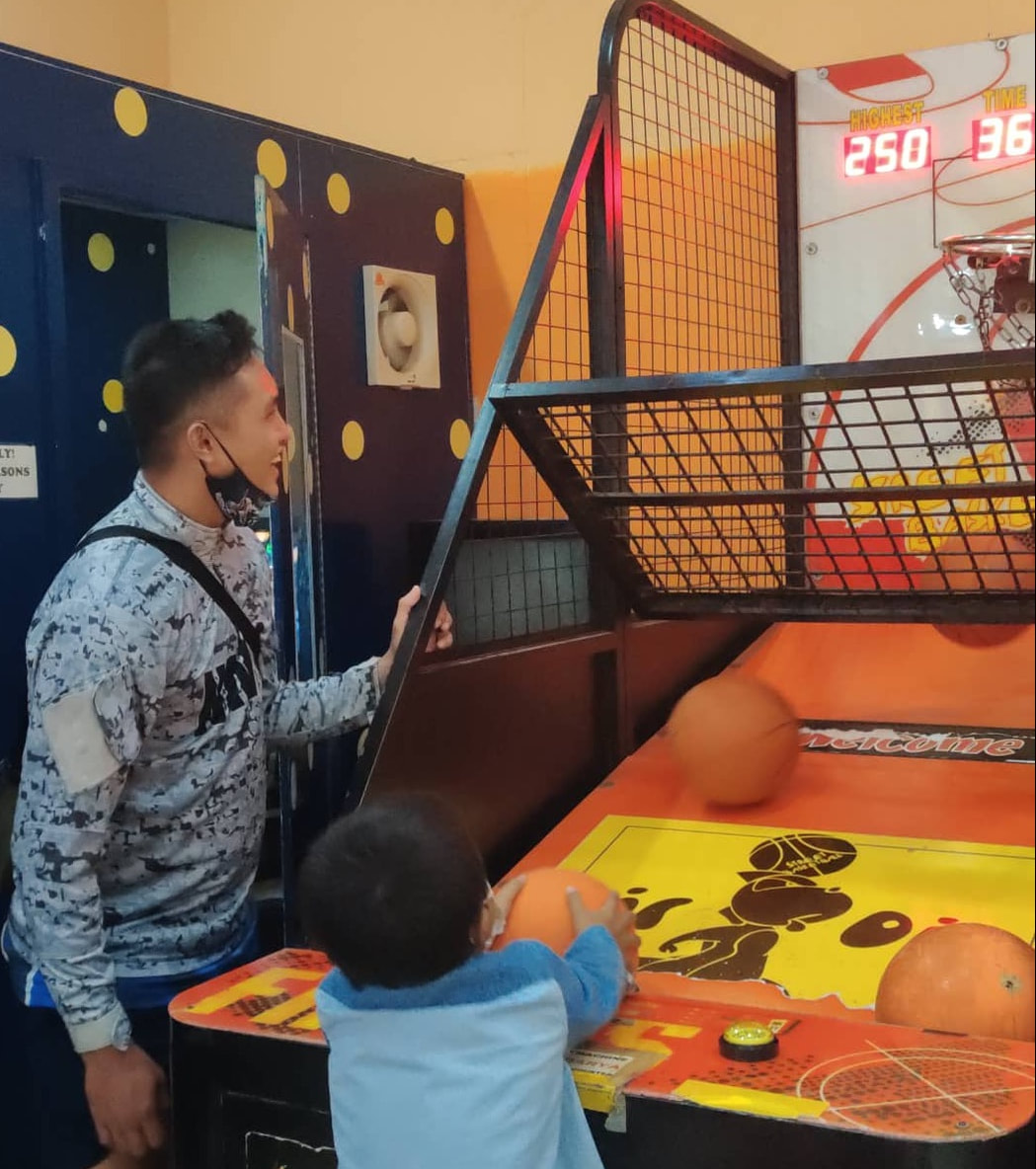 In the succeeding days, we just stayed at home and tried to spend time with his family as much as we could. I was also able to meet Jack’s high school friends. I talked to his mom about my family. I also have a big family like Jack, and I am also the breadwinner of my family. I always think the worst so I thought that Jack’s mom might not like me in person but I know now that she is kind and understanding. Since the trip, every time we talk in messenger she asks me about how we are doing and also reminds us to eat on time, not drink too much alcohol, and to take care. She also asks about how Jack is doing in Cebu since they barely talk in messenger. I told her that Jack is doing good in his job but it is always demanding of his time, which is why he can't call or message her often. We get along so well, although sometimes I struggle to communicate because their dialect is Waray, one of the major dialects in the Philippines. The major dialects include Bikol, Cebuano, Hiligaynon (Ilonggo), Ilocano, Kapampangan, Pangasinan, Tagalog, and Waray. Although there are some similar words with my dialect Bisaya, Waray is still very different, so the only way for us to communicate is in Tagalog. Though Tagalog is the national language in the Philippines, I feel awkward speaking it since my dialect is Bisaya or Cebuano from Cebu. We ate together for every lunch and dinner. We also did karaoke and drank beers with his family. I was very surprised that they welcomed me wholeheartedly because my boyfriend had a relationship for 5 years before we were together. They were very close with his ex-girlfriend so I thought that they would not be happy to meet me, but I was wrong. I never felt out of place there. I felt close to them since I also came from a big family and can understand their family dynamics.
Post author Maggie is a former resident of MRH who has graduated college and passed her board exam for social work. Her writing has been edited for clarity. Early in the morning of Dec 16, 2021, Typhoon Odette made landfall. That morning had been sunny, so I thought the typhoon would be like other typhoons that hit Cebu – nothing serious. In the afternoon it got windier and the clouds grew darker. There were less people on the streets as rain started slowly. By 6pm the power was cut off and rain poured even harder. I lived in a three-story apartment building, and was laying in my small rental room with my two cats (Kiyo and Tirzah). I was trying to sleep but the sounds frightened me - wind whistled loudly and my neighbors’ roof rustled, about to rip off. I lay in my bed praying that God would stop the typhoon early, and wishing I had someone with me aside from my cats. I heard a knocking on my door and as I opened the door my neighbors were lined up with their kids at their sides. They could no longer stay in their rooms because the strong wind had already broken their windows. At that time, the wind was not strong in my room, so I offered to have them stay with me until the typhoon stopped. There were fifteen people inside my tiny room; 4 mothers, 2 fathers, 8 kids, and me. We all curled up in the room, with the kids in bed and the moms sitting on the floors. We talked about the typhoon and when it would stop. One mother told us the story about the first time she encountered a strong typhoon that hit the Philippines - Typhoon Yolanda. We talked a lot about our different experiences and prayed for the typhoon to stop. Around 8pm, a strong wind blew my whole window out. We were all shocked and everyone shouted because we were so afraid. We tried going down to the 2nd floor, but as we opened the door, strong winds again forced us away. We stayed in my room and put my bedframe up to cover the broken window. My things were wet, so we curled up together, hiding under the kitchen sink. The kids got to sleep when the wind was getting weaker and I wondered at how the 3-month-old baby slept the whole time. At around 10pm we decided to go check the second floor again. Most of the renters there did not have any damage so we split up into different rooms and stayed through the night.
At night, a friend of mine visited as a favor for my boyfriend, who was not able to contact me from Manila. Fortunately he had borrowed money for me from my friend since he couldn’t send money through a cell phone signal. I had a hard time coping with everything, and all I thought about was how to contact my loved ones. Most of us were not prepared for this emergency to happen. We did not stock food or water. Everyone started to panic buy and hoard almost everything they could to survive. Everyone was in line for food, water, and other essentials. I couldn’t even use my money to buy water because there was none available since all the refilling stations did not have power. All I could afford to buy was the stuff I needed for a day or two and I would just be wasting my time standing in line all day at the supermarket. Once, I stood in line from morning until afternoon, skipping lunch to keep my spot. Around 2pm the guard told us that only 20 people were allowed to enter since they would have to cut us off at 3pm, so I went home and got nothing. I wasted my entire day and I was so mad. I could have used that day to wash my laundry or clean my room. I might as well sleep there at night to be the first one to get inside the grocery store in the morning. Even at ATM machines and gasoline stations we still had to wait hours or a whole day.
My family also does not have enough money to sustain their daily needs. They struggle a lot since my sister and I are the only ones supporting them and my sister was not able to work after the typhoon. They depended on the relief goods and financial assistance that the government and NGO provided in the meantime - mostly canned goods, noodles, milk, biscuits, and rice. The relief operations are still ongoing but sadly most of the people were not able to receive them. I visited them once after work and it made me so sad that they were not able to cook dinner since there was no food. I bought rice and viand for them that night but my budget for fare going back to work was sacrificed. My sister was able to return to work after 2 weeks providing more food, though still not enough. We are happy and relieved that my sister is working again. I still visit them every weekend to check that they are still doing okay. spending time with my siblings and nieces, and talking to my mom is like therapy for me. Around a month after the typhoon, the power is mostly restored in our community, but everything is still overpriced, even the water. Life is easier because we do not need to go to charging stations,and we can do more things that need to be done with electricity. It is livelier since we can turn on music to cope with all the negative feelings and thoughts about the typhoon. Recently, my dad got sick. His left foot has a big wound that started with a scratch from mosquitos. They got it checked with a doctor since it wasn’t healing, and he was prescribed antibiotics for 10 days. They went for a follow up and the doctor said he did not need a check up, but gave him more expensive prescriptions. I was so frustrated, worried, and sad because I couldn’t give financial support as I am also struggling now. He is still on medication which is not helping him much. The doctor most recently advised him to be admitted to the hospital. I am full of emotions right now but I am hoping for the best. I am currently working as a program assistant in an NGO and I’m trying to find a new job that pays well so I can provide for myself and for my family. I am also waiting for an update from an NGO that I also applied to as a Social Worker. They said that they would contact me in February, but they were also affected by the typhoon, so I will have to wait until they are settled down. I always cling to the Lord when times are tough. I know that God has a purpose for everything and he will do great things for me and my family. Whenever I am sad and worried I always remember my favorite bible verse which is Jeremiah 29:11 “For I know the plans I have for you” declares the Lord, “plans to prosper you and not to harm you, plans to give you hope and a future.” Even though we are struggling right now, I am grateful that my family and I were safe during the typhoon. I will always try to see the positive side and the things that I can control; the rest is up to God.
Post author Charie is a survivor of the Typhoon, living in Cebu and supporting her family in the storm's aftermath. This post has been lightly edited for clarity. Dec 16, 2021. It’s been difficult since my second daughter got sick and nauseated with a cough and fever. This month last year in 2020, I remember the awful day when I could tell she was having a hard time breathing. We rushed her to the hospital at Sotto, where she was admitted for pneumonia, and immediately intubated at just 3 months old. I was terrified and I prayed for everything to be fine and that my daughter would be saved. I asked my husband to keep watch at the hospital, scared that I would not have the strength to see my child in that situation. She was intubated for a week, sleeping throughout this time period because the doctor gave her sleeping pills to keep my daughter from pulling the tube out of her mouth. After a grueling week at the hospital, my daughter went into recovery thanks to the people who helped us financially with hospital costs, and those who prayed. She came home on Jan 31, 2020, in time to celebrate the new year with the whole family. It was almost exactly one year later when we heard the news about a typhoon coming. On December 16, my child was sick again with a cough and was a little nauseated. With our past medical experience in mind, our priority was to get our daughter the medicine she needed to improve her symptoms. So that afternoon, my husband and I decided to take her for a checkup even with a typhoon warning out for that night. When we got to the clinic, there were no doctors available. We were directed to an online check up in which the doctor told us to get her admitted immediately. I was in so much shock and concern for my daughter and didn’t have time to think, so we decided to follow the clinic doctor’s advice. We got to the hospital at Saint Anthony’s, only to be told by the nurse that they only accept emergency patients. Instead, the nurse gave our daughter a quick check up and determined her oxygen levels were okay. He sent us back home with the direction to use a nebulizer. At around 7pm, my husband’s aunt came to the house to have us evacuate to the school. The wind was strong and I was so scared and concerned about my child. At around 10pm, the typhoon started. I was crying and so worried about all of us. My son also cried because he was scared of the very strong wind. I was just carrying my daughter and hugging her tight. I prayed and hoped she would get well.
Lines for water were long, we suffered a lot and let the children drink first before ourselves. We Searched everywhere for food. We stayed at the evacuation center for two weeks, which was difficult since there was no electricity - every night we slept in the dark and our kids cried due to a lot of mosquito bites. I fanned them a lot. We spent Christmas and New Year’s in that unfortunate situation but at least we were together. My husband still looks for drinking water and food while I watch over three kids. My big sister Dolores left her child with us after the typhoon, and we haven’t seen her since the storm. My sister has not checked on her daughter, Rosamie since and is not thinking straight anymore. . Rosamie always misses her and asks where she is.
When the school needed the classrooms back for their teachers, we had to leave the evacuation center. We are back at our house, and avoid using the living area since it is still in dangerous condition. Luckily, we have electricity now, but still struggle to buy food because my husband's business is still not stable yet. On January 8, 2022 the owner of the land where we live talked with us about demolishing our house. They gave us until January 20, 2022 to move out. We still don’t have a place to live. I hope someone can help us with our situation. We are still struggling… and praying for better in the new year. |
Categories
All
|

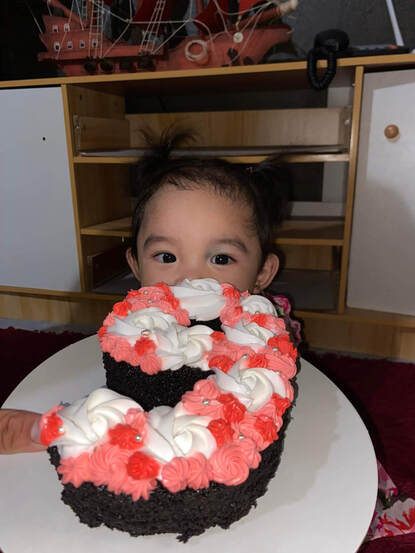
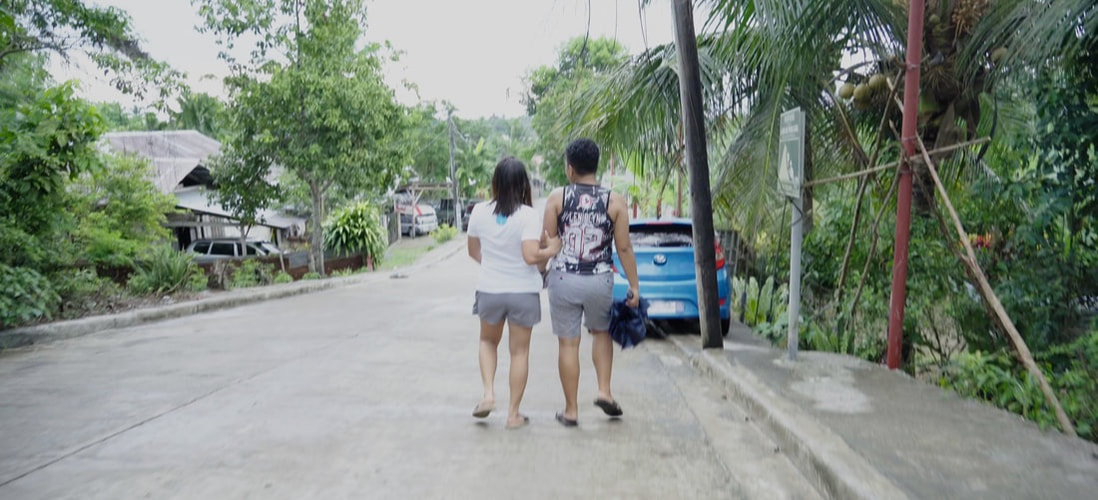
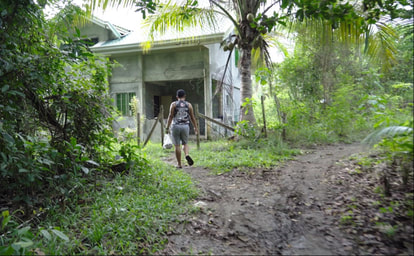
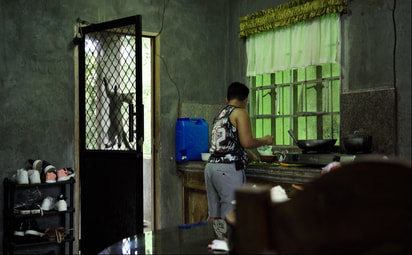
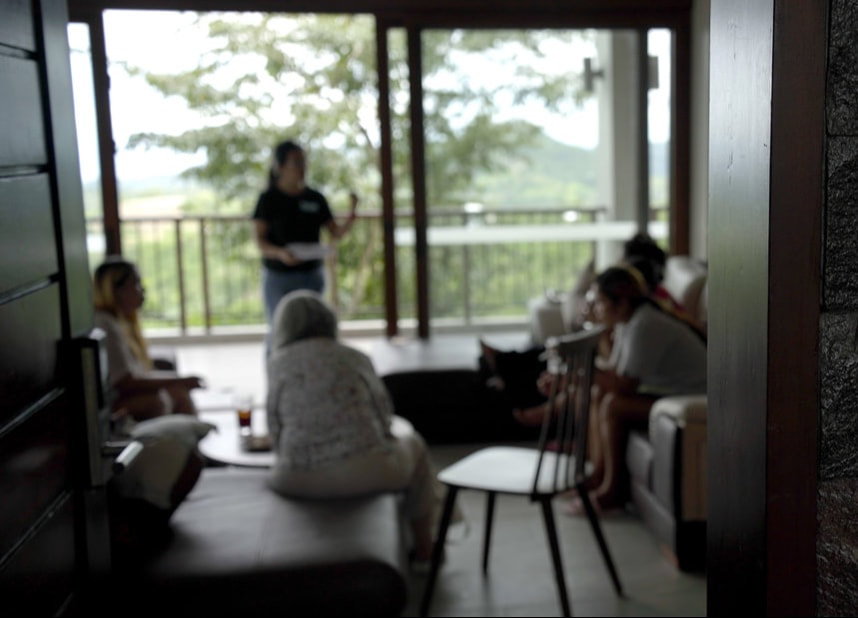
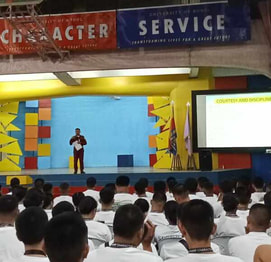
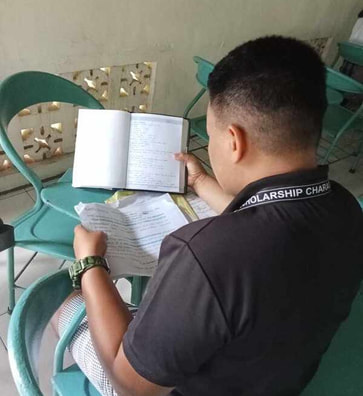
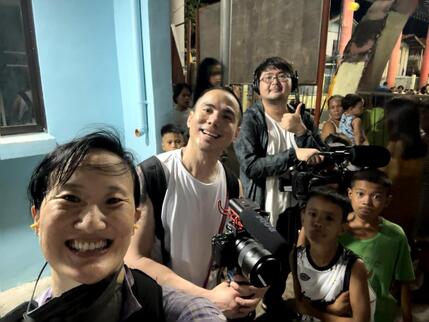
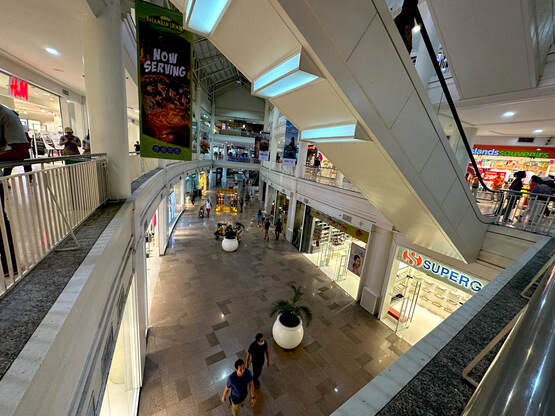
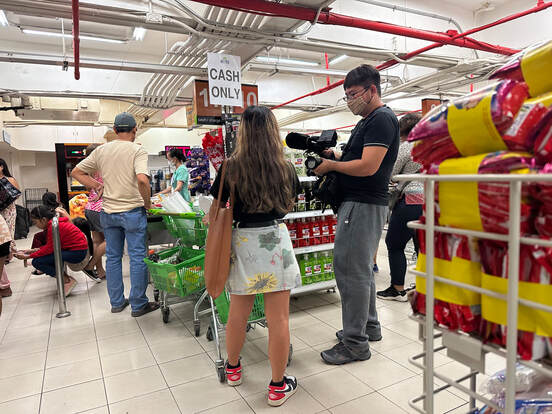
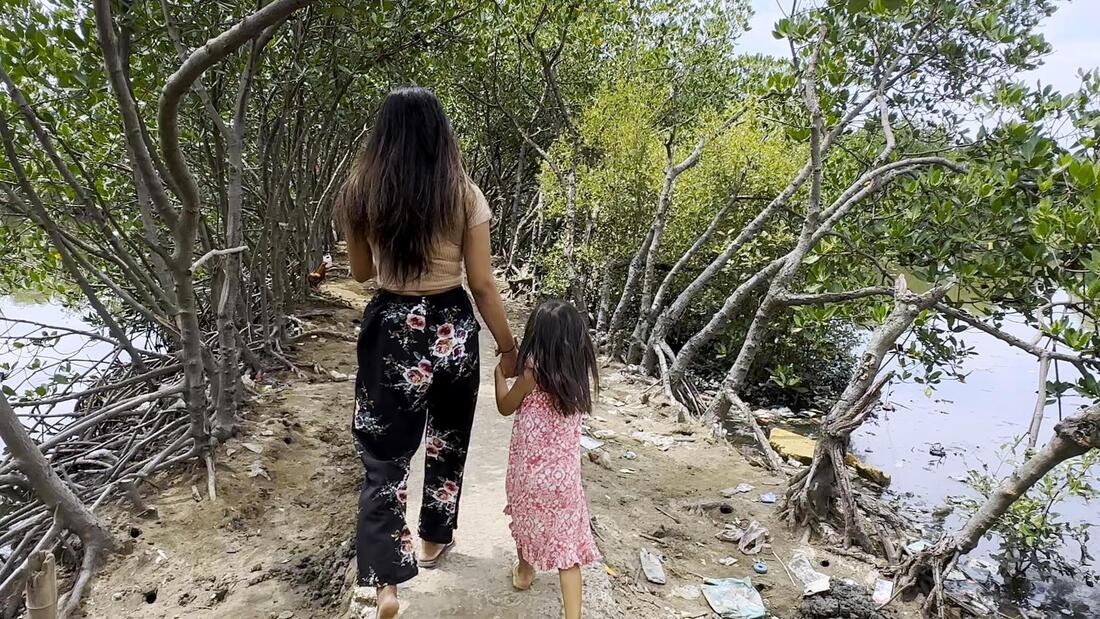
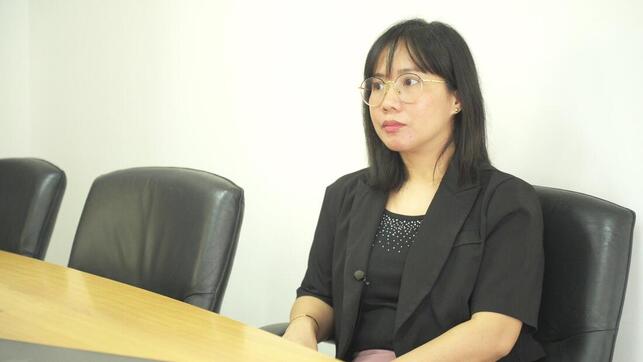
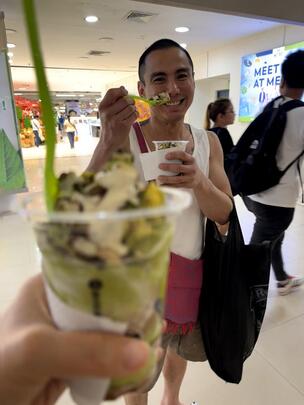
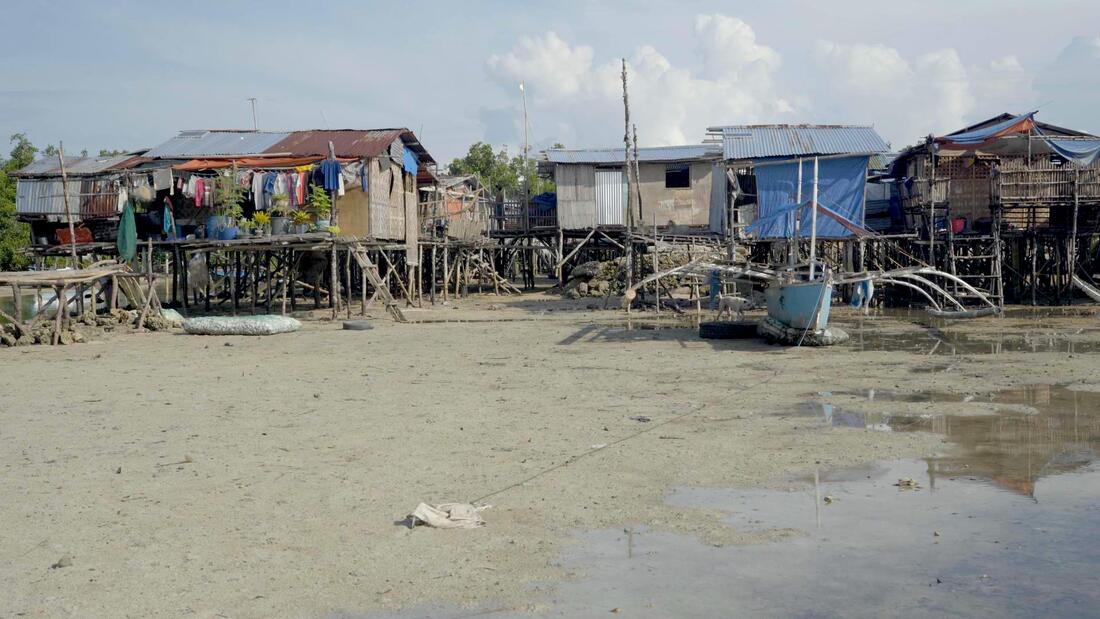
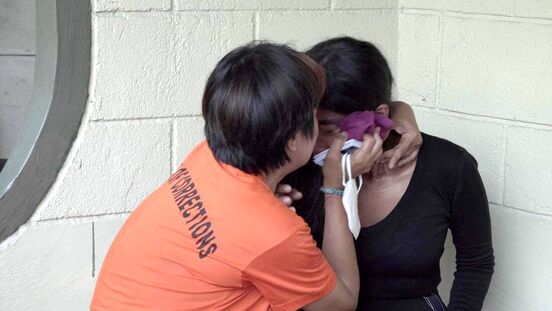
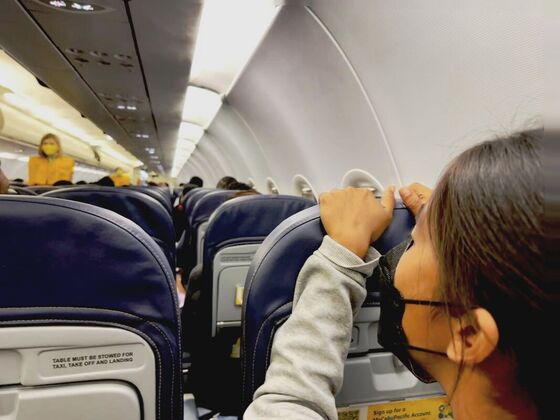

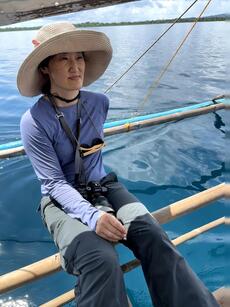
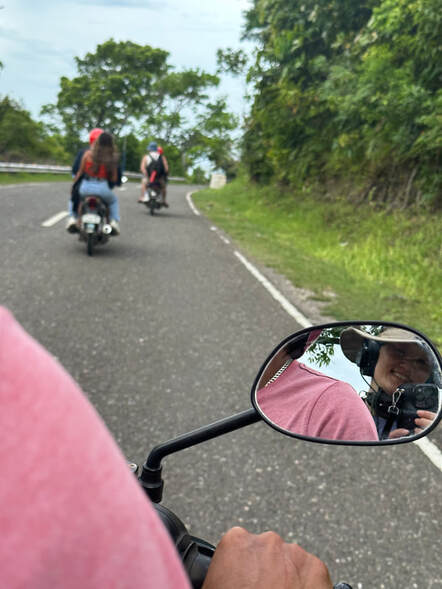
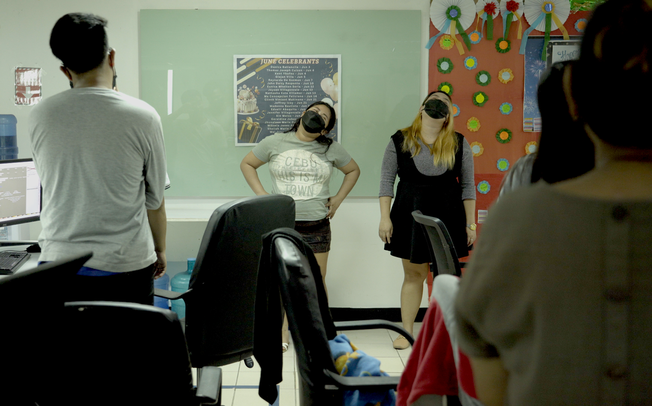
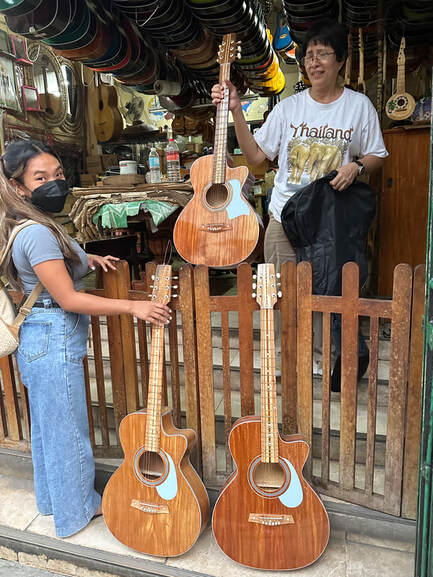
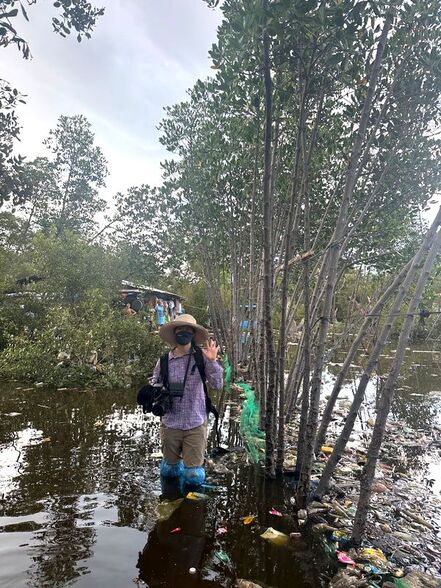
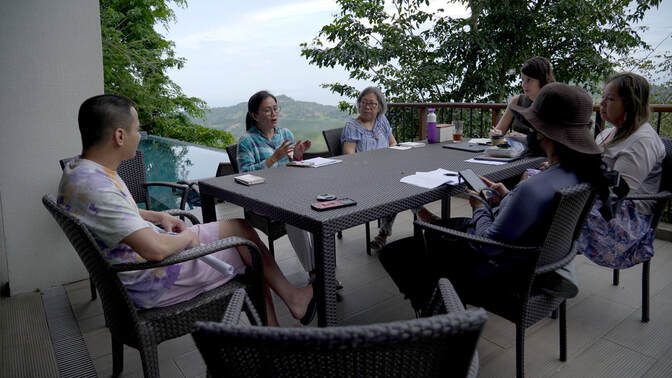
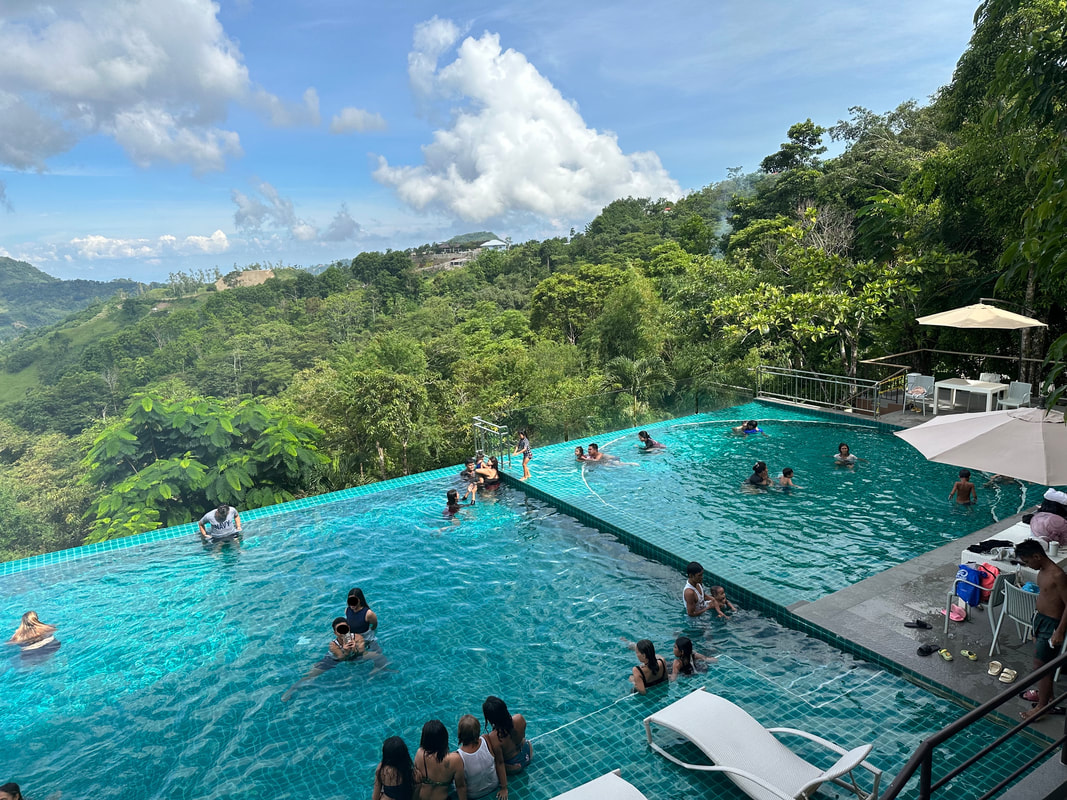
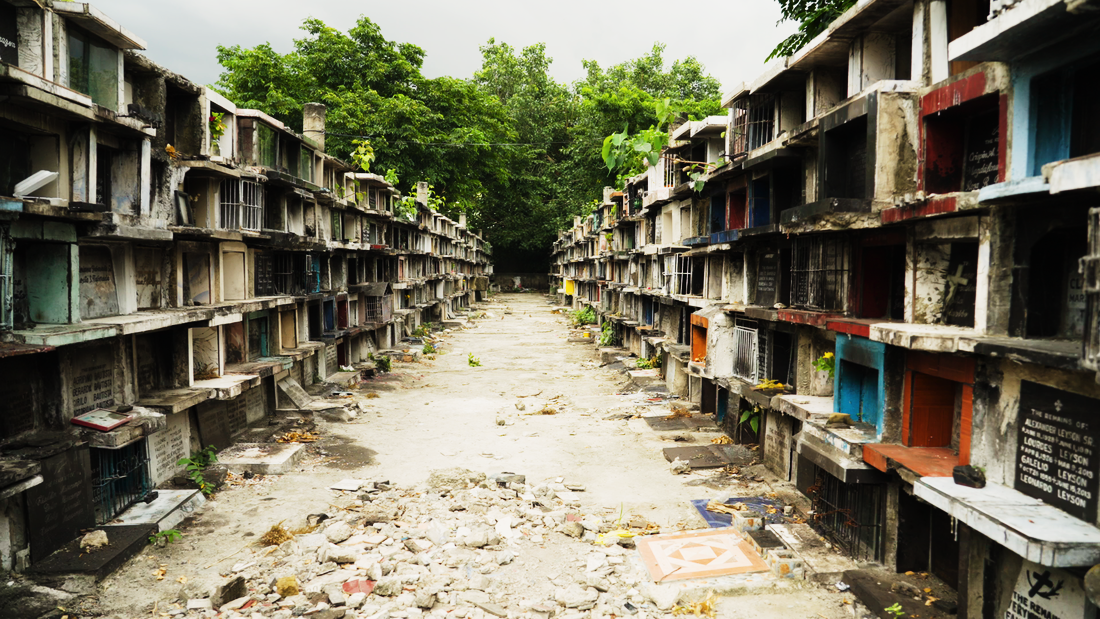
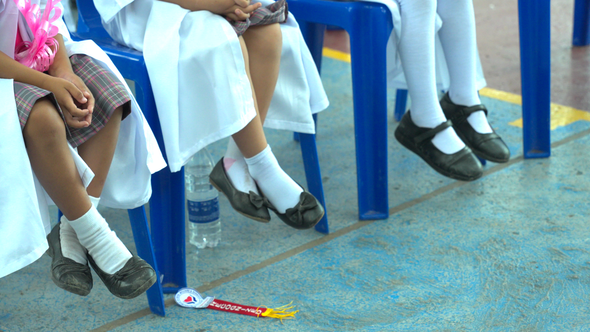
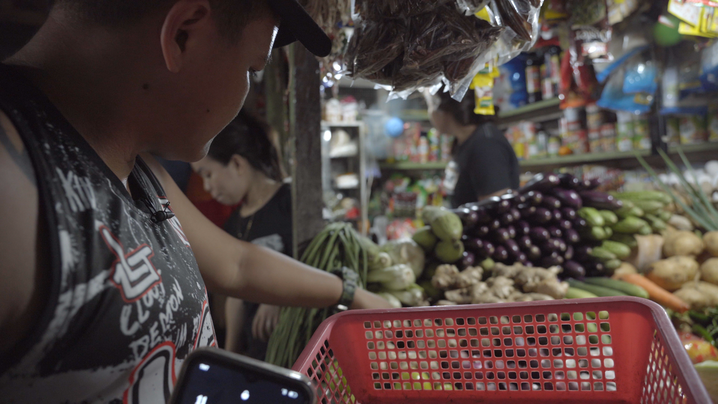
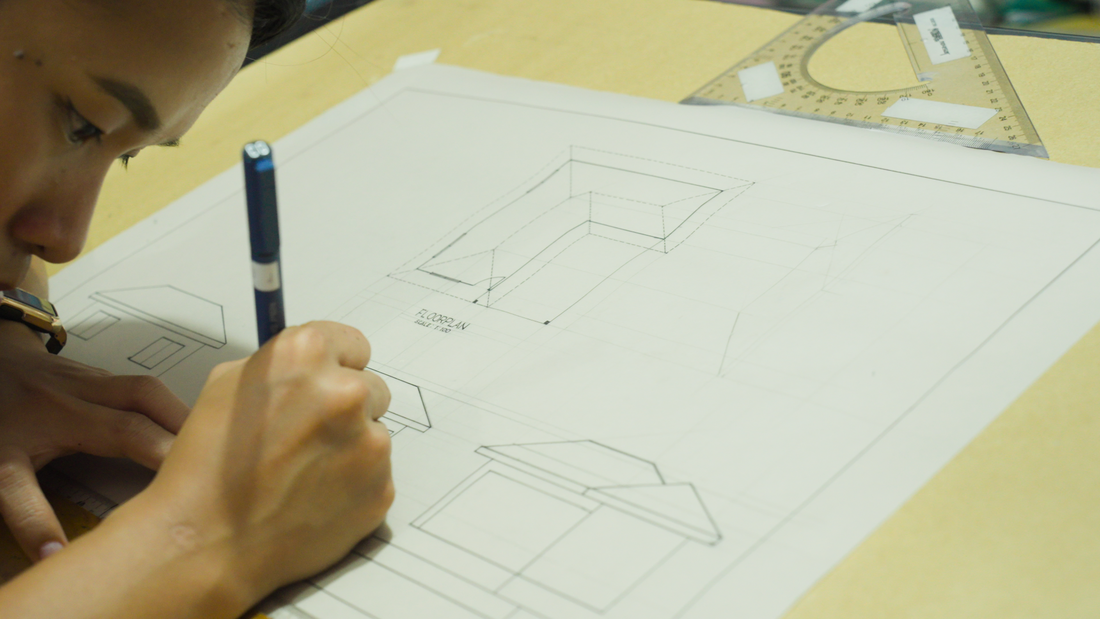
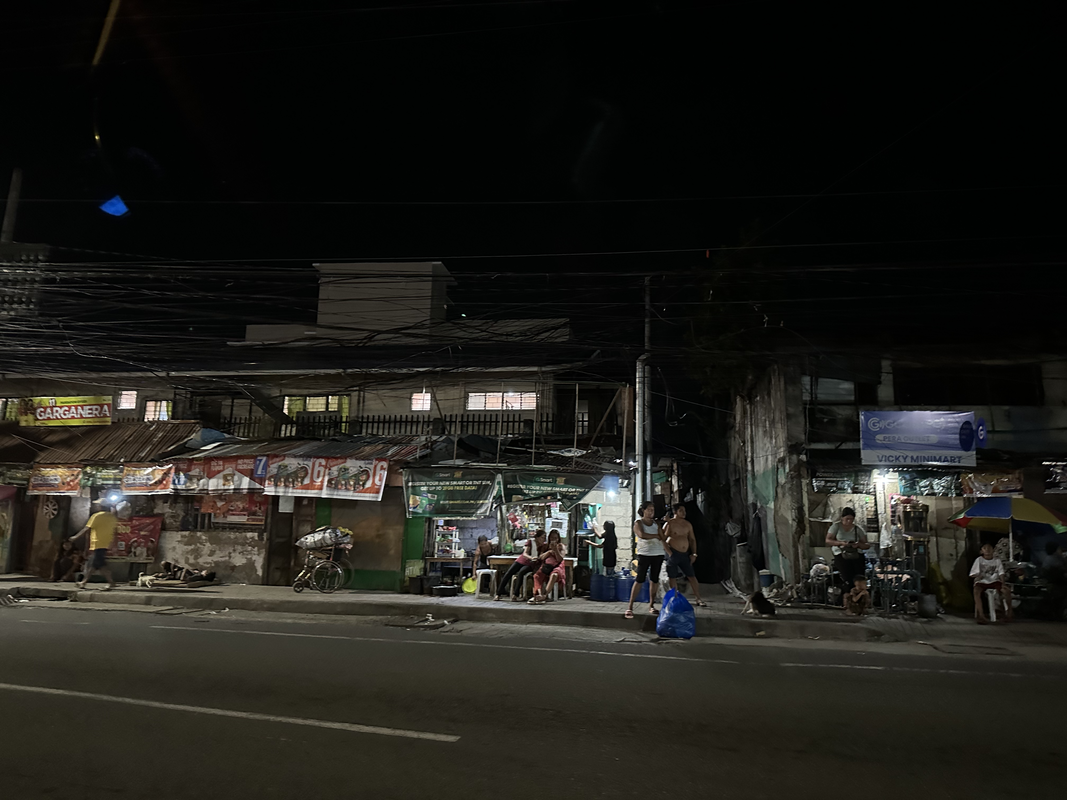
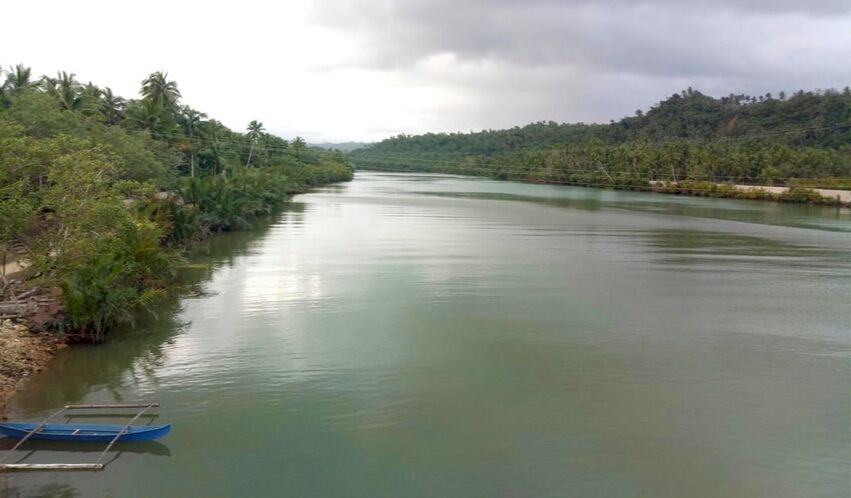
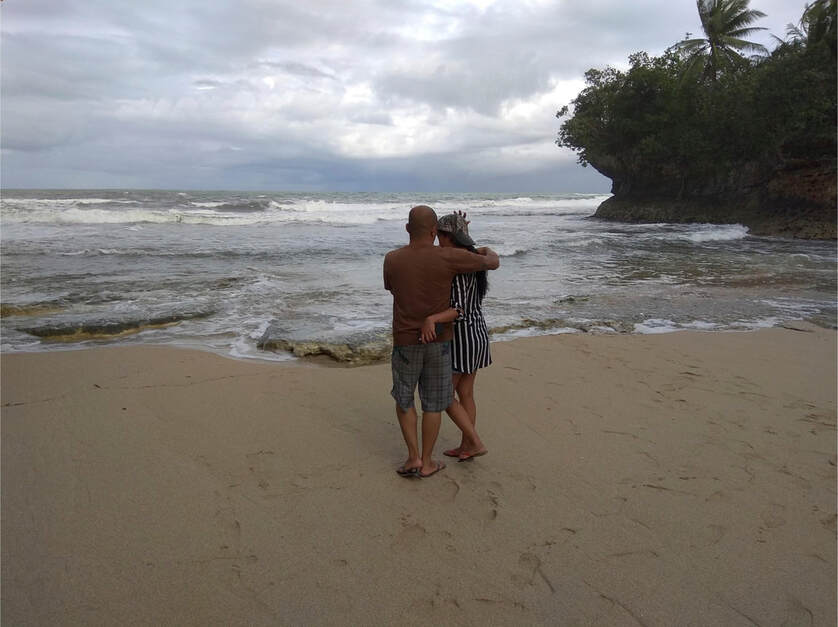
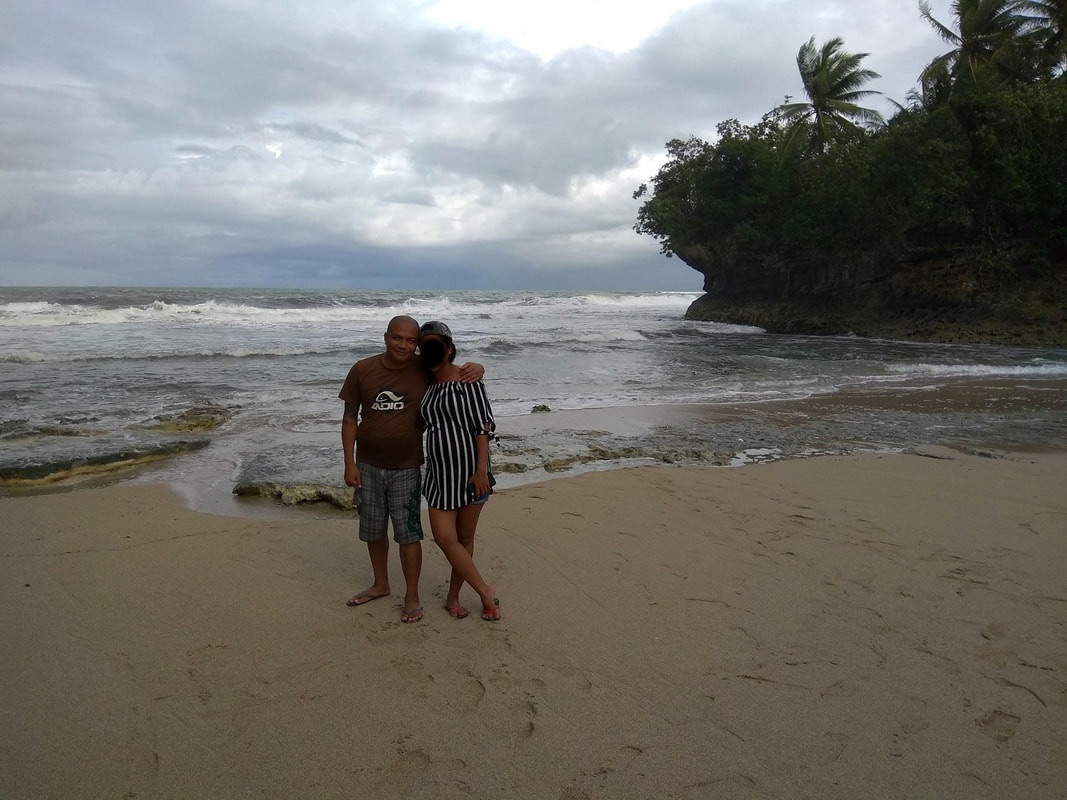
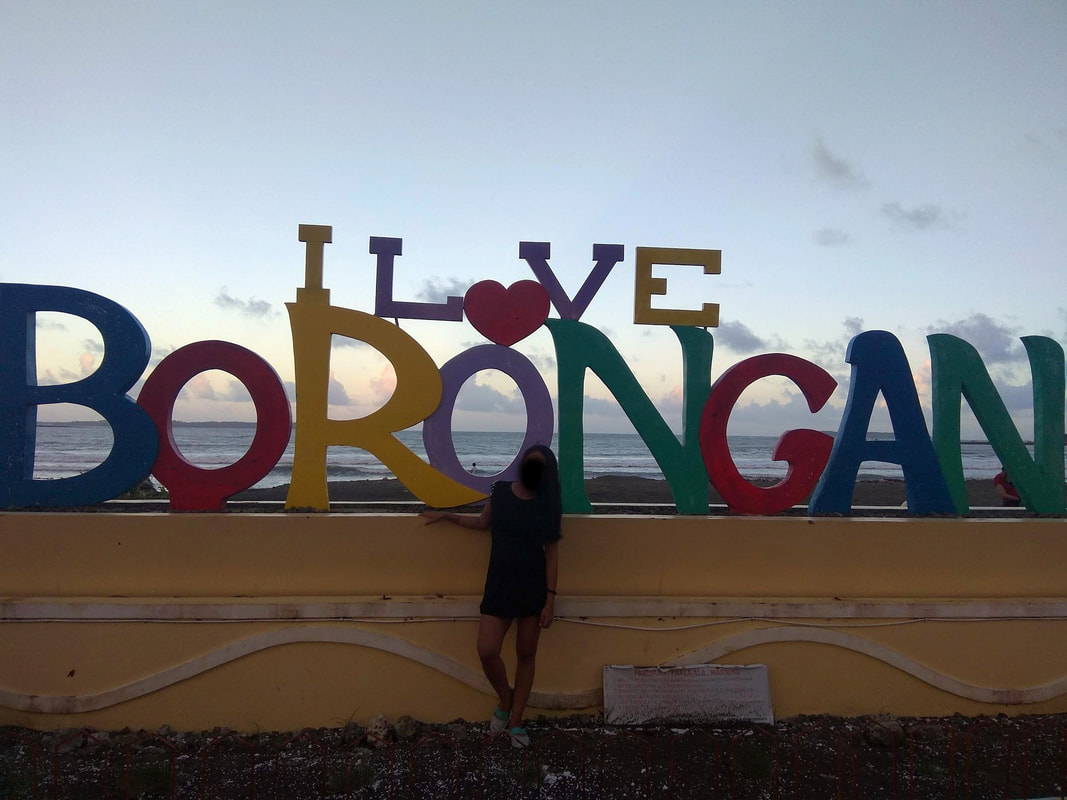
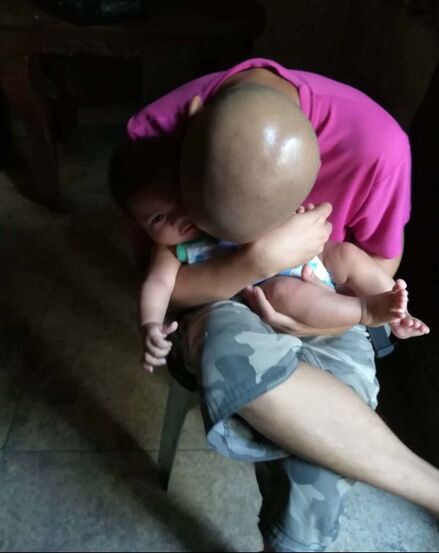
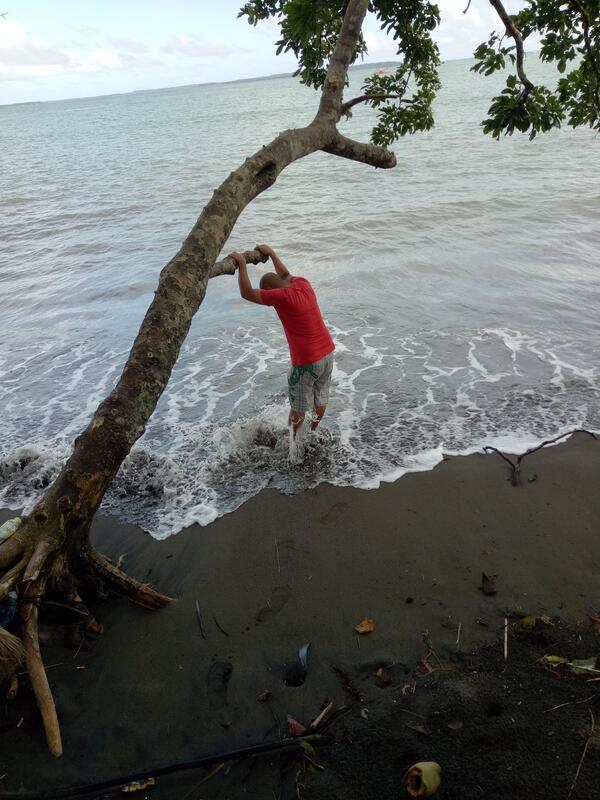
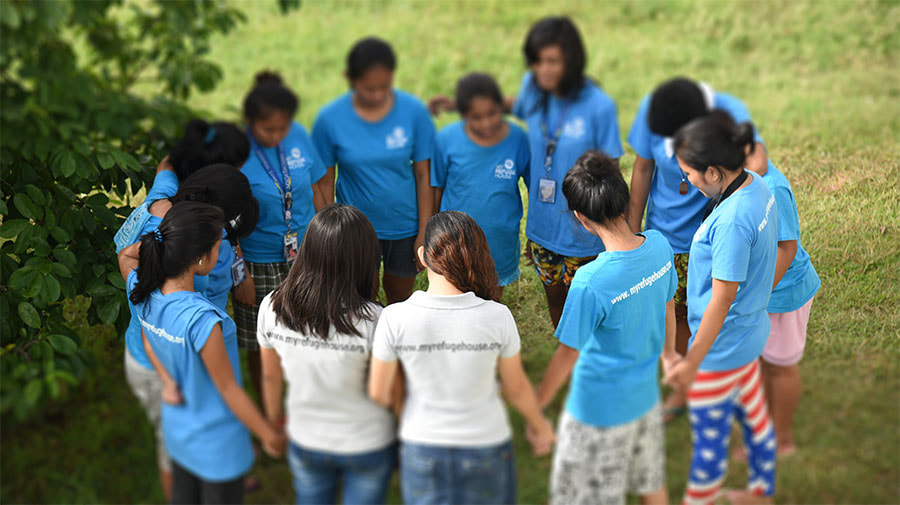
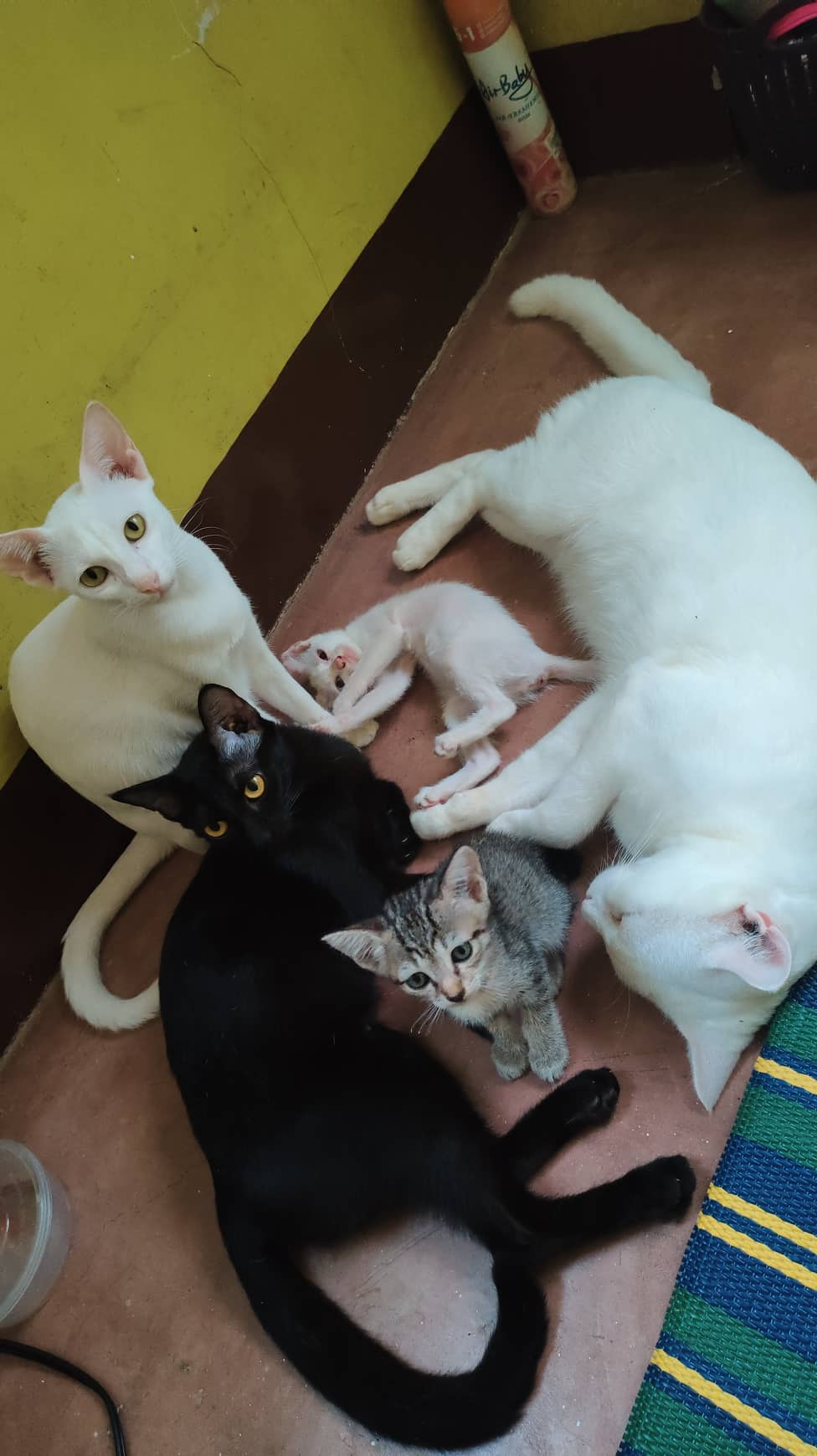
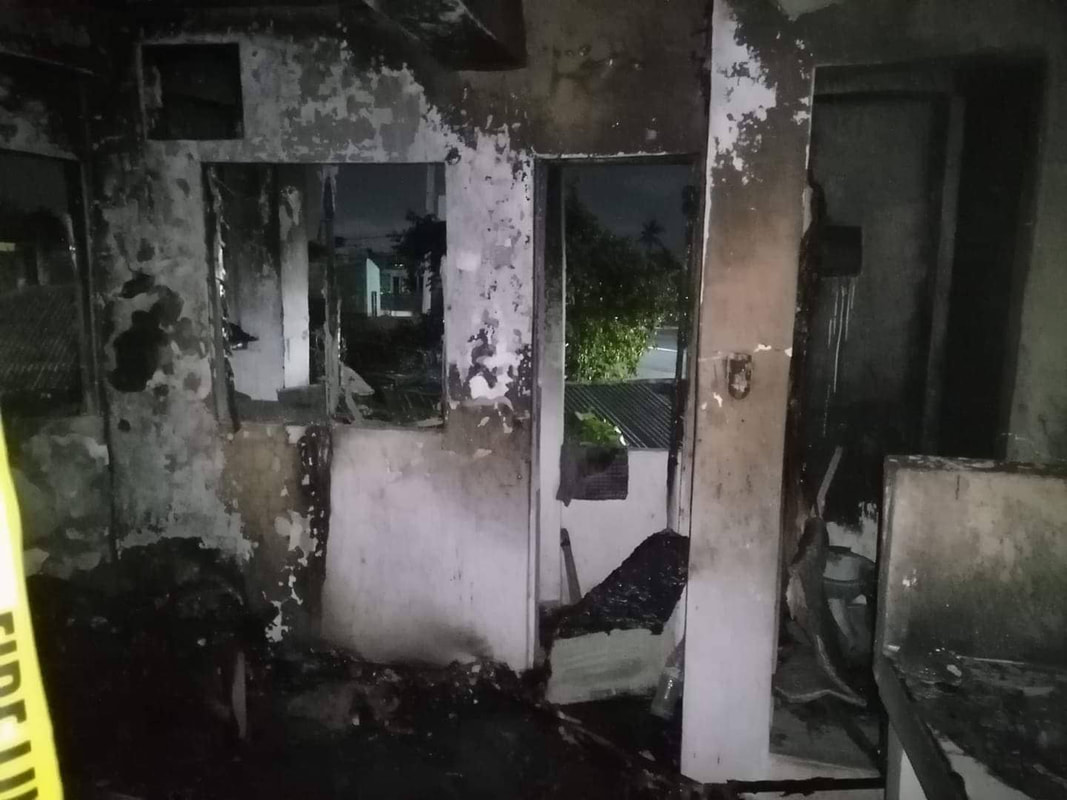
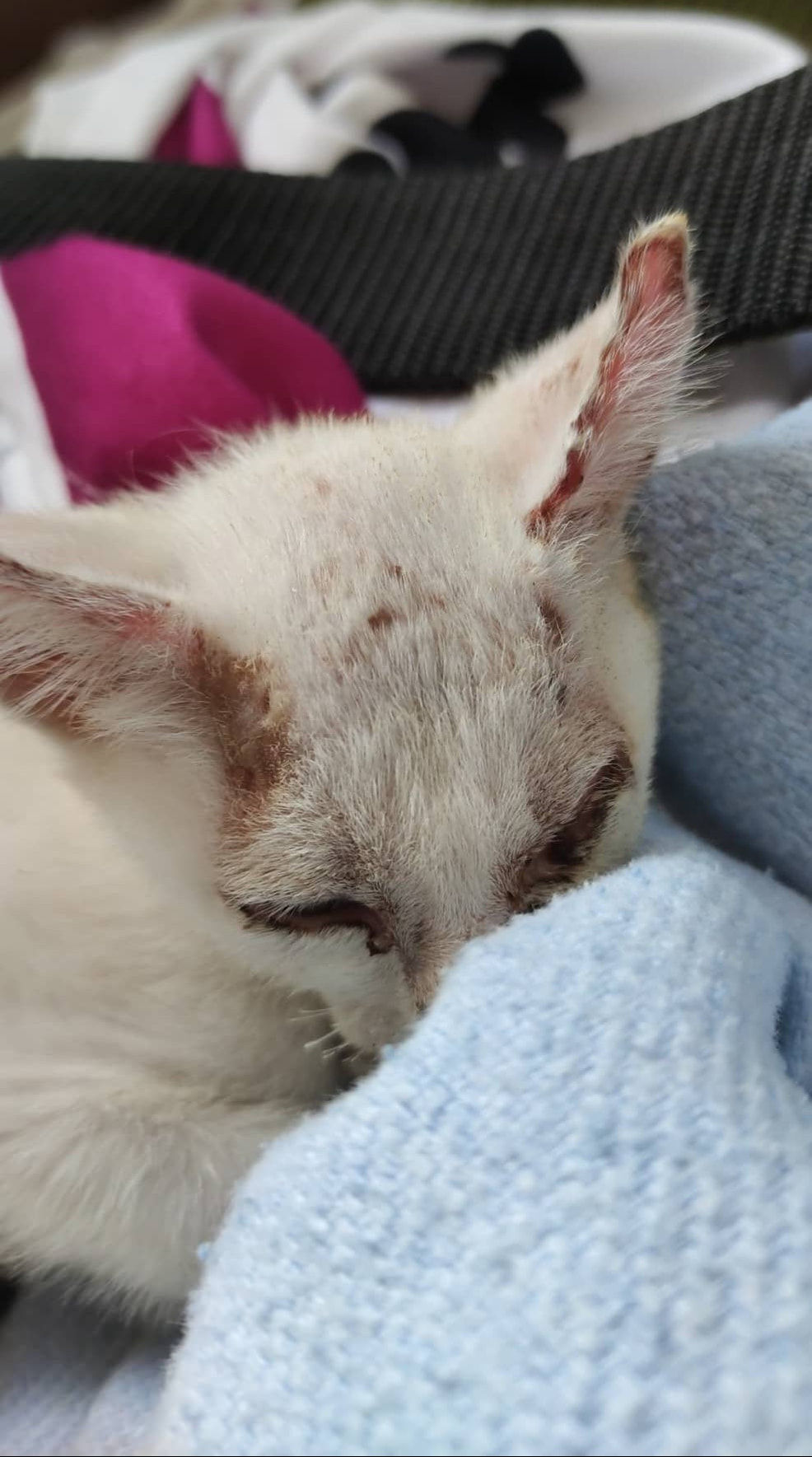
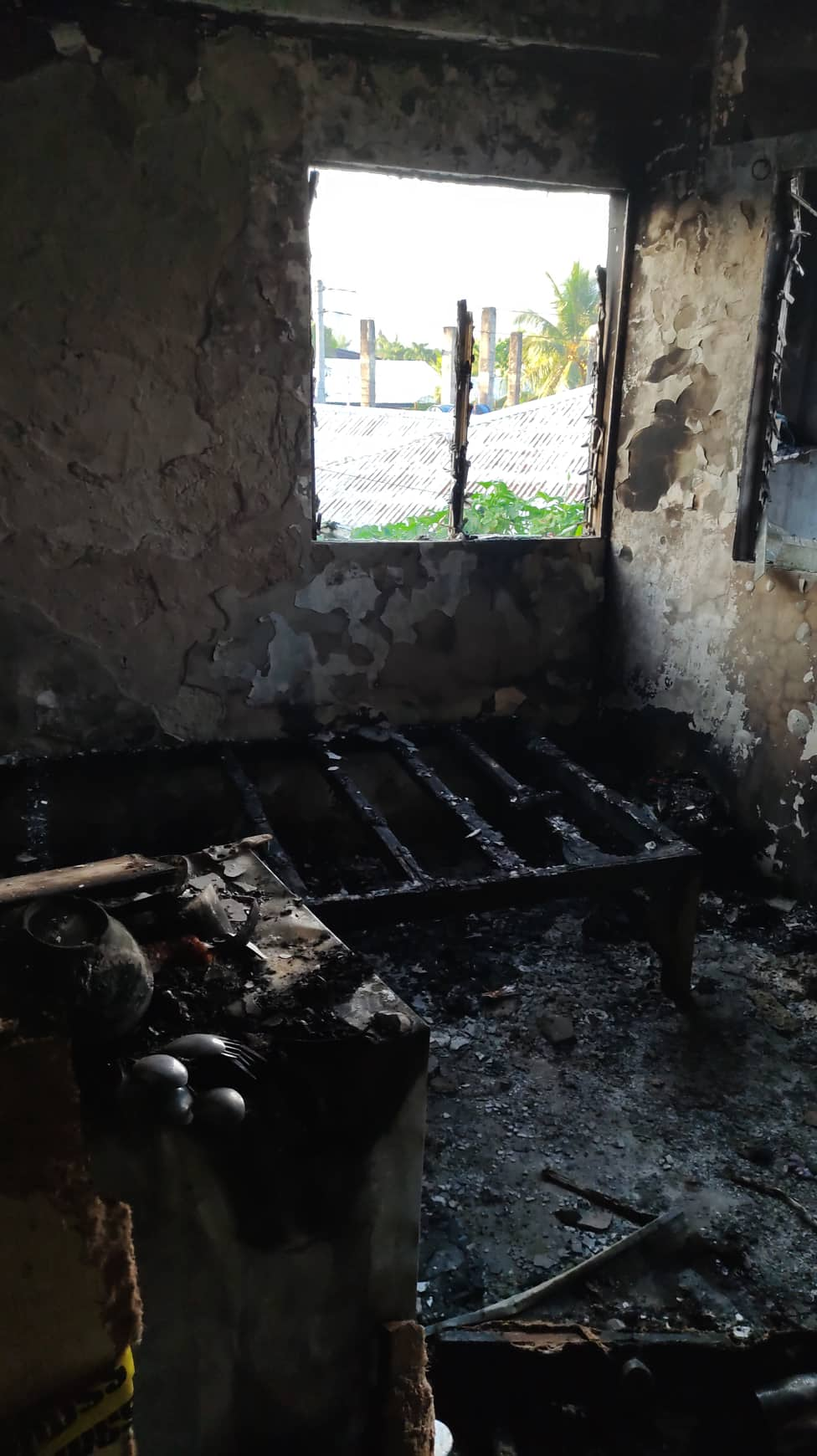
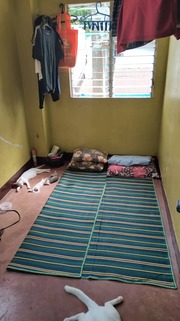
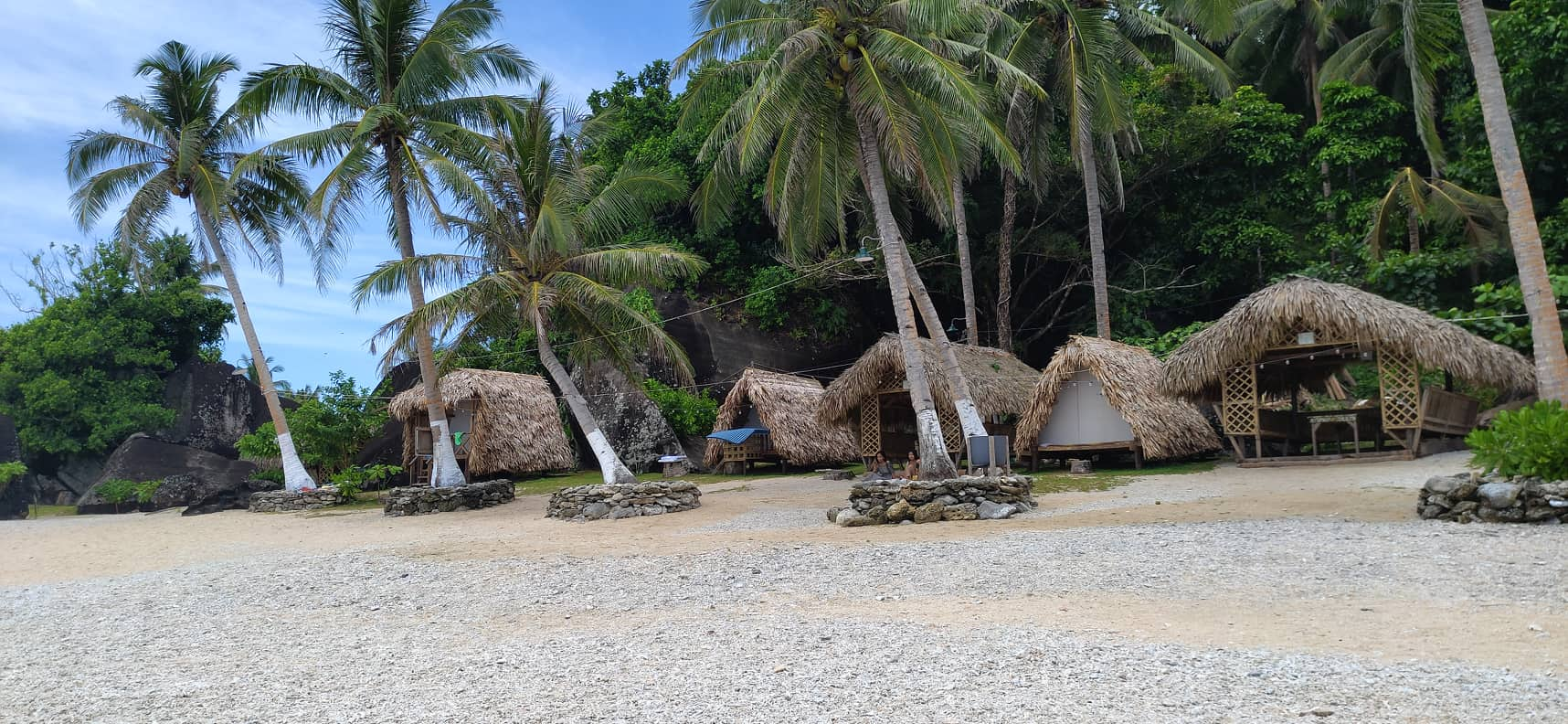
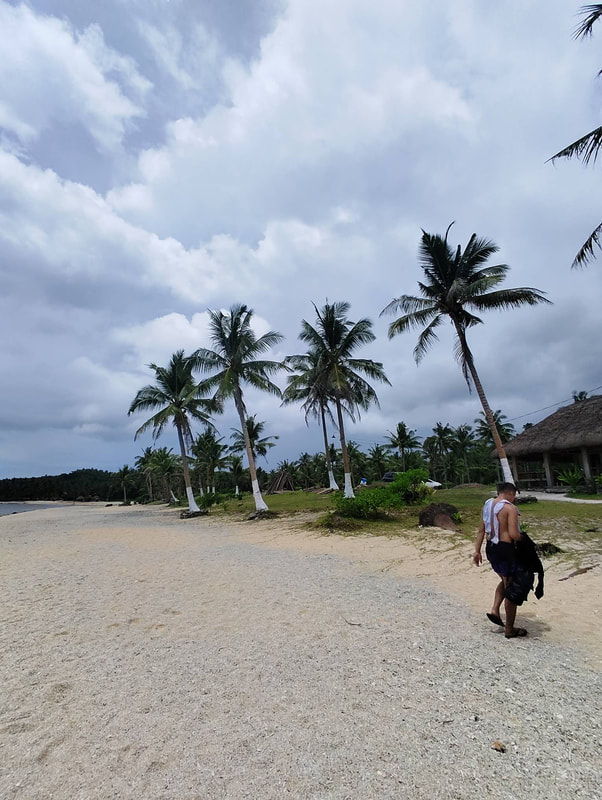
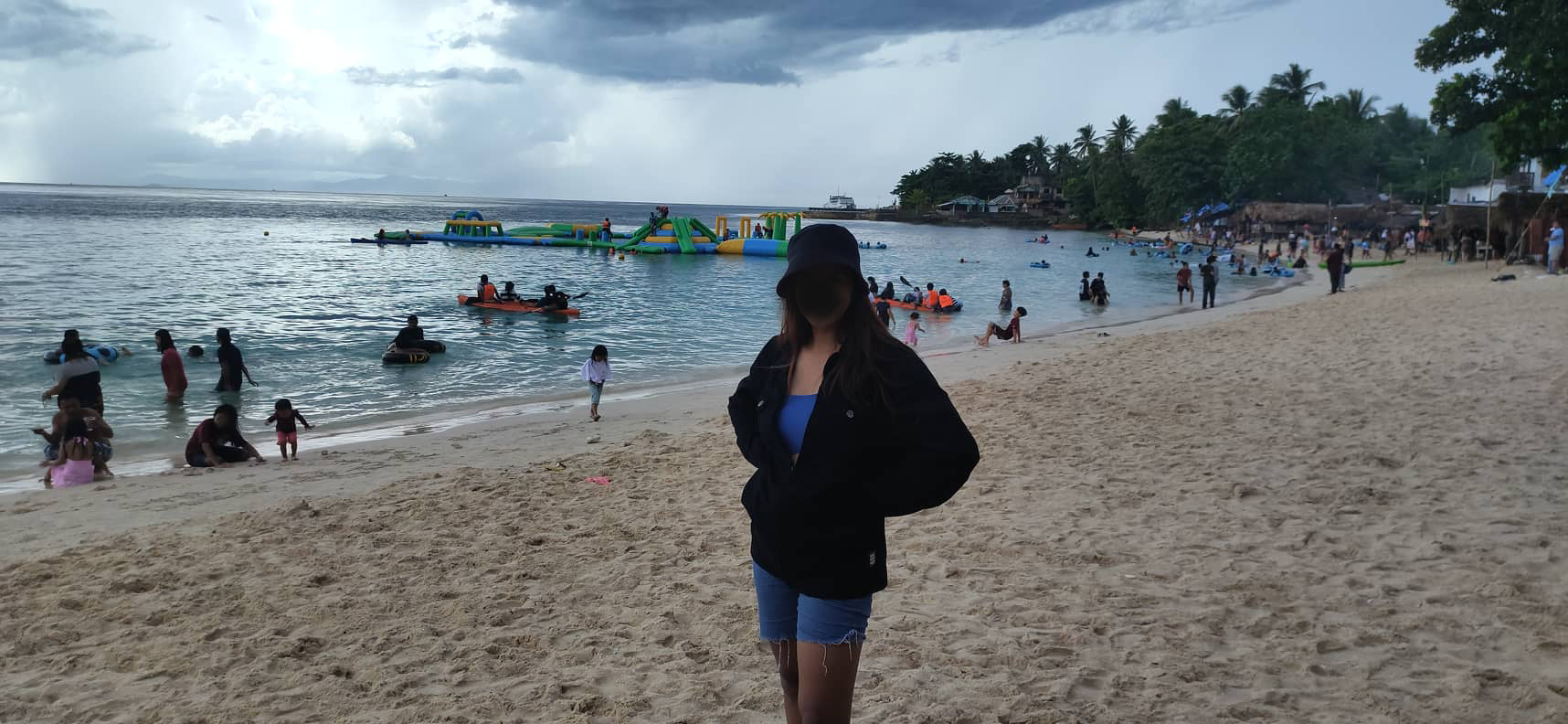
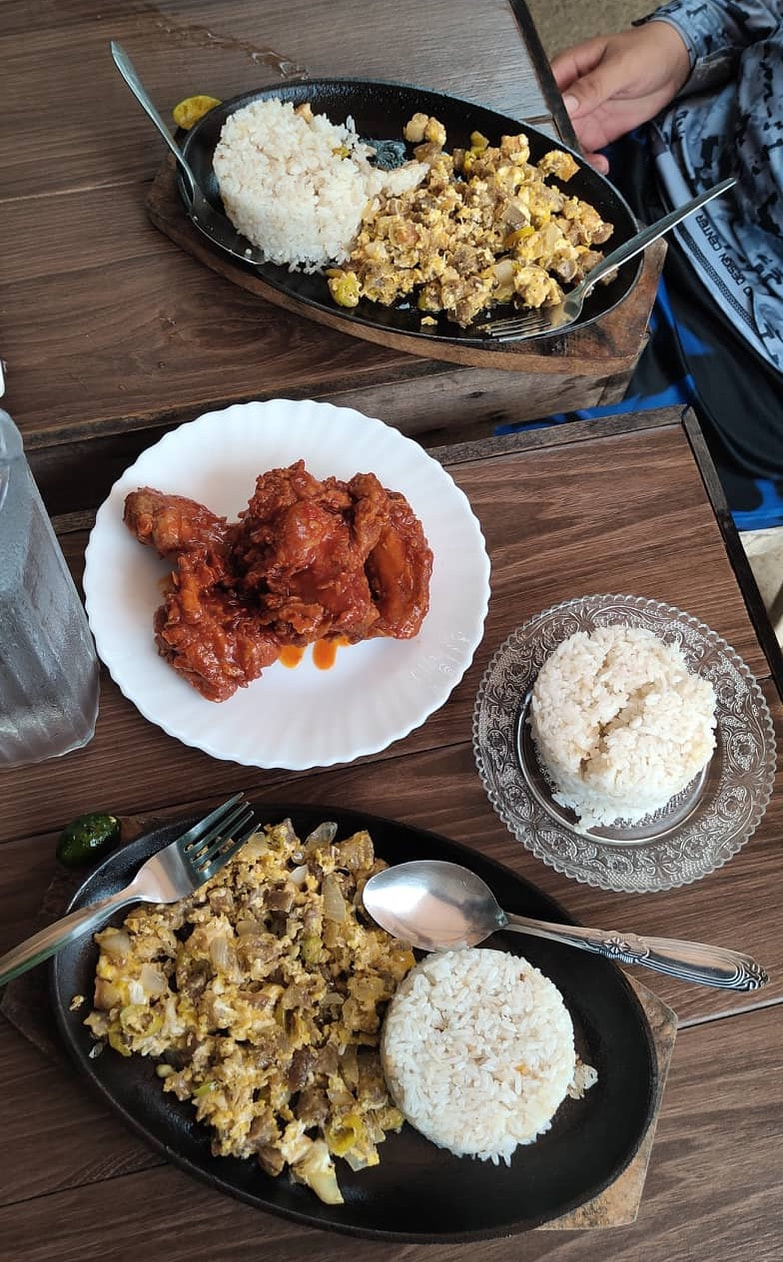
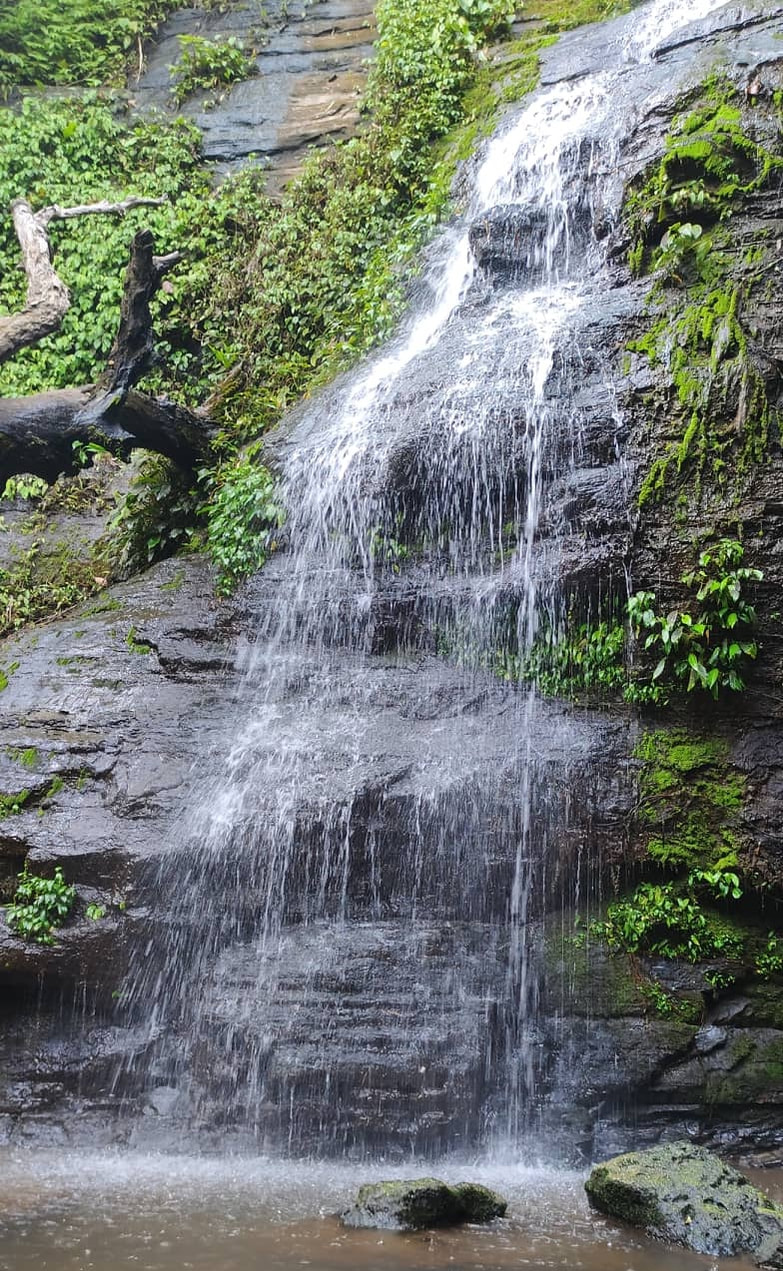
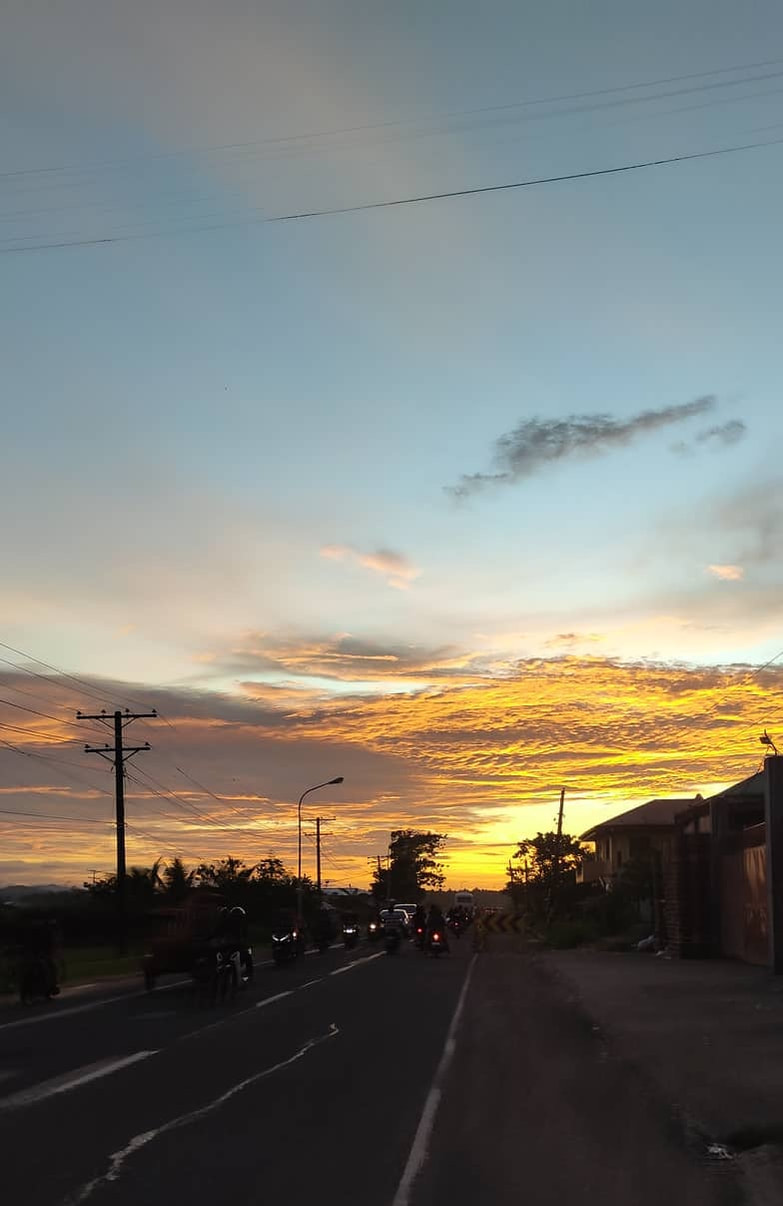
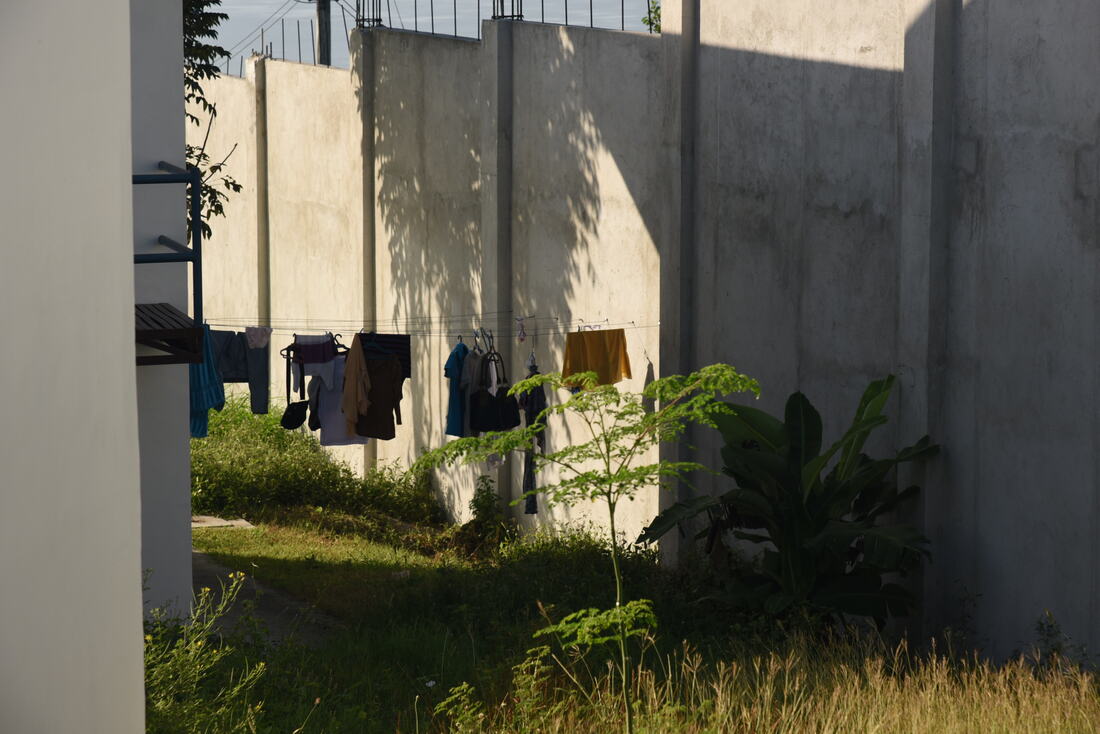
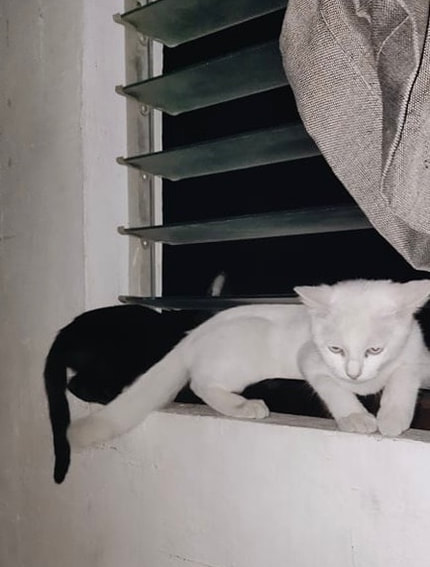
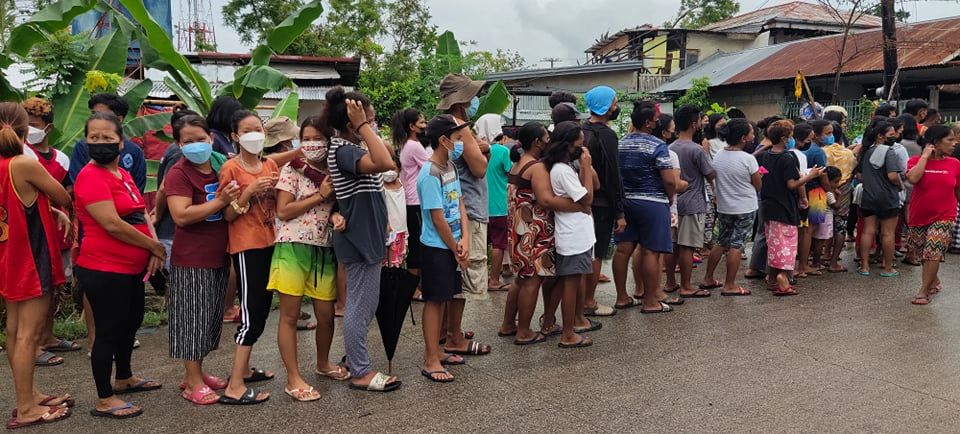
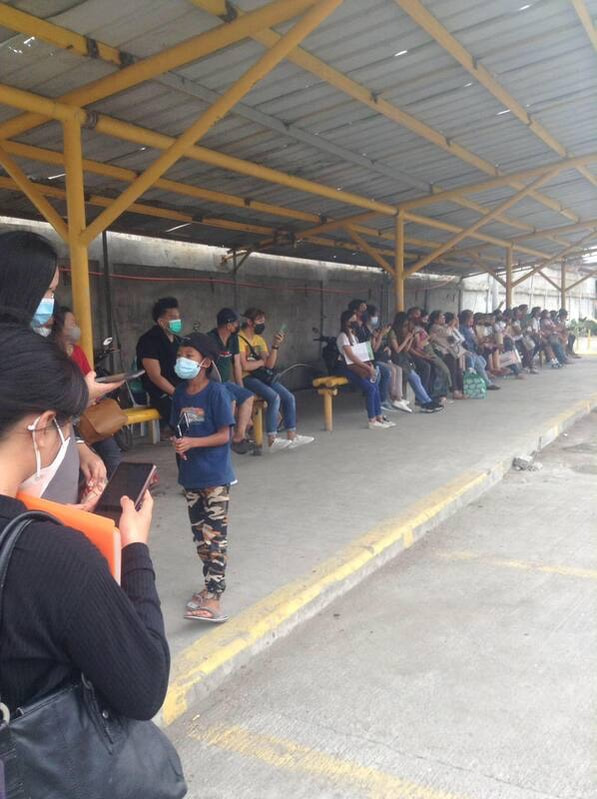
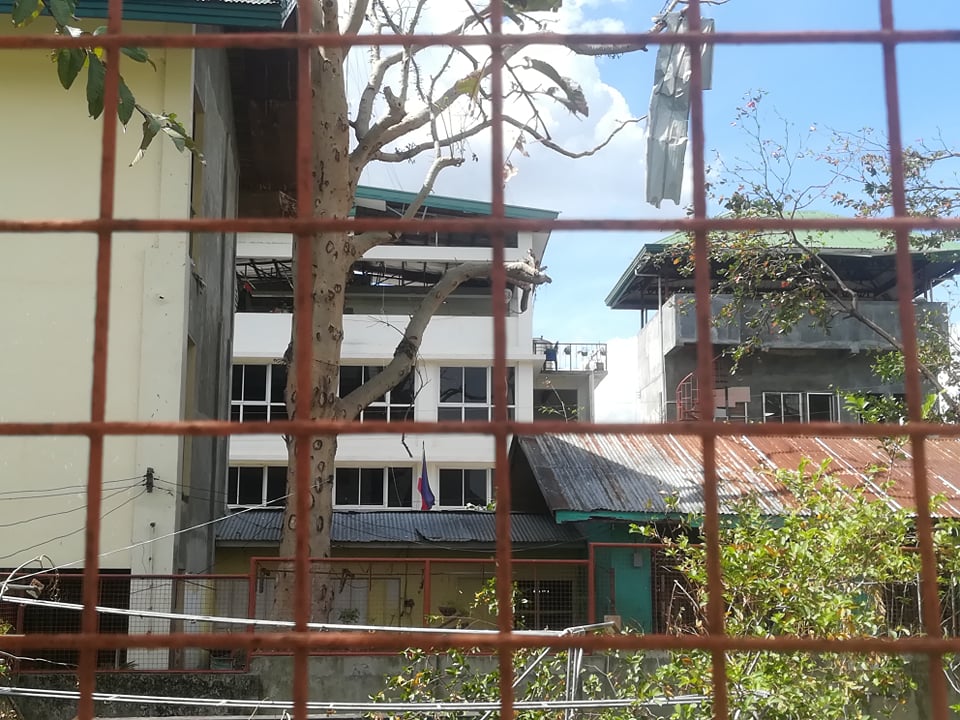
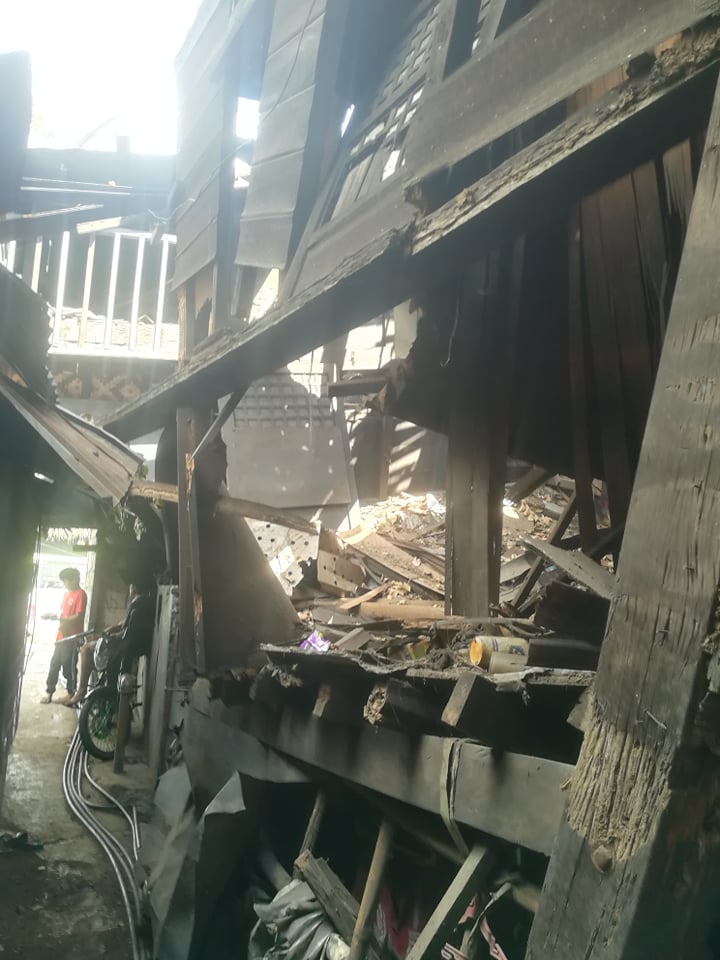
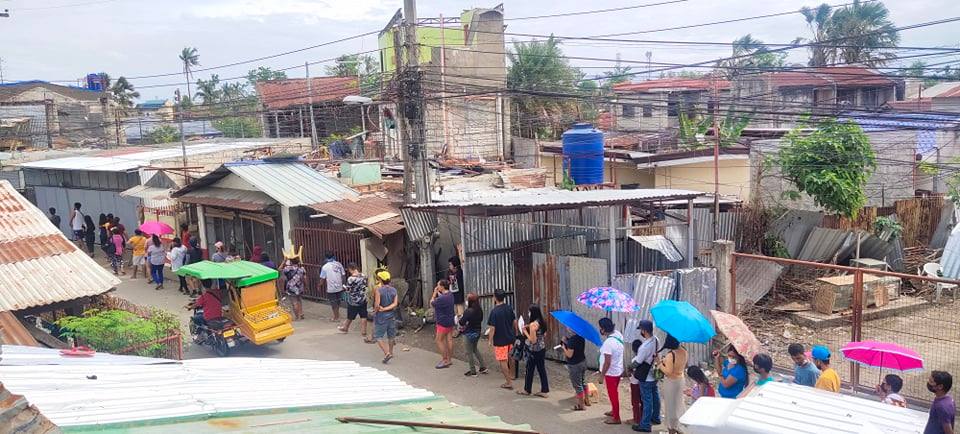
 RSS Feed
RSS Feed